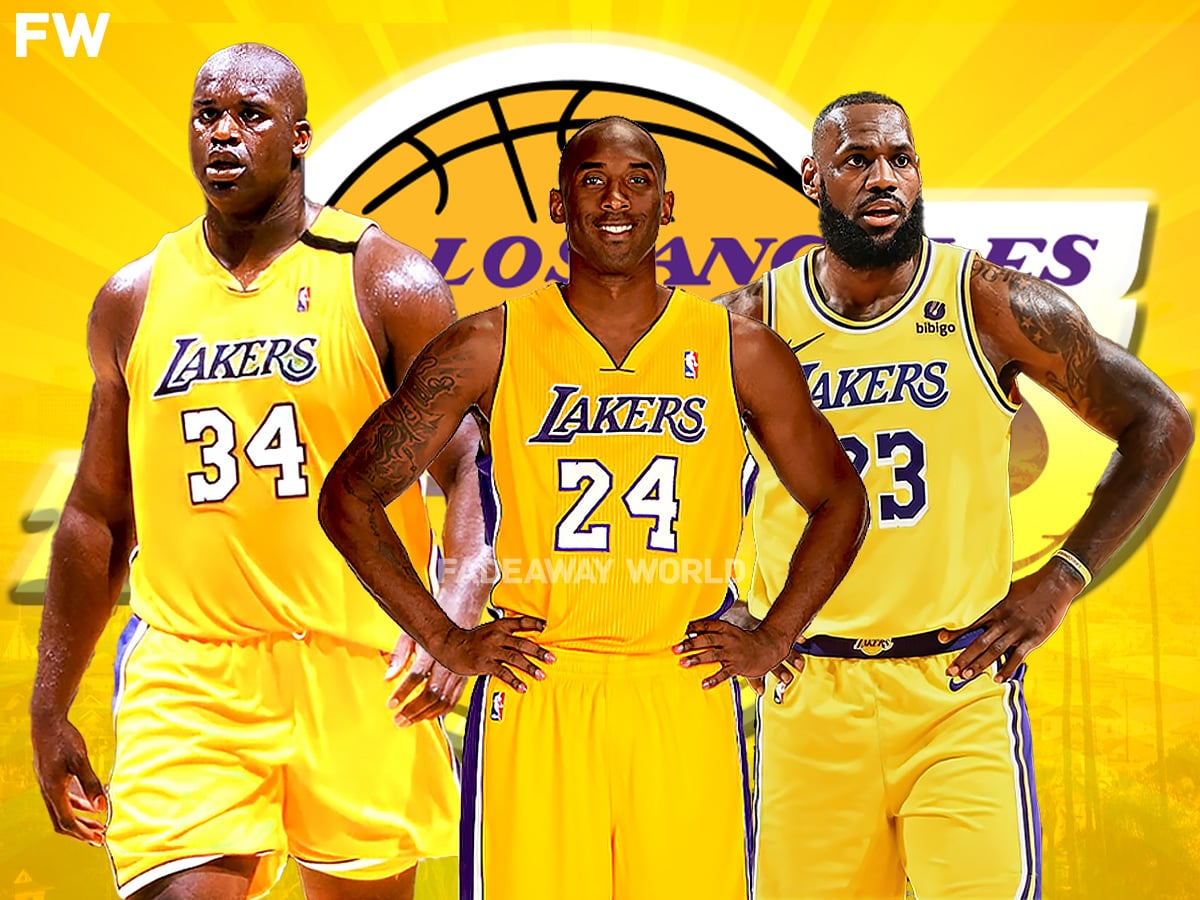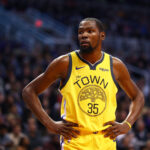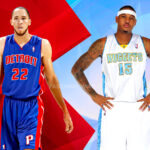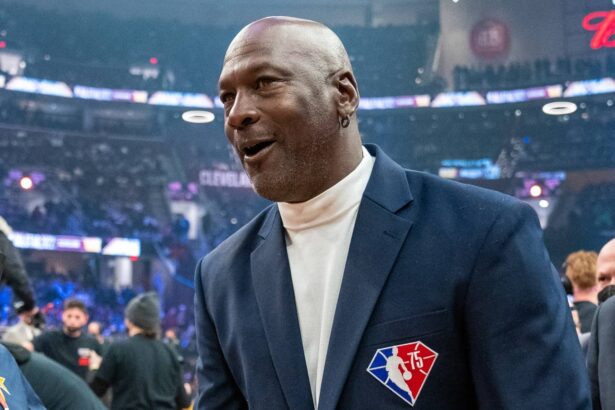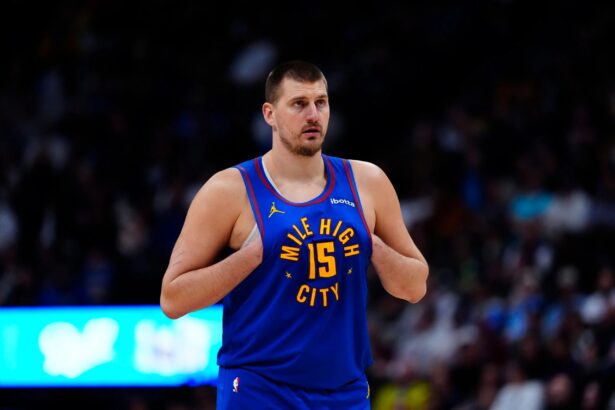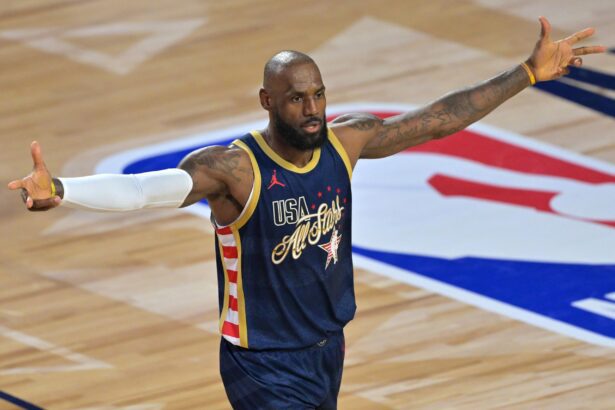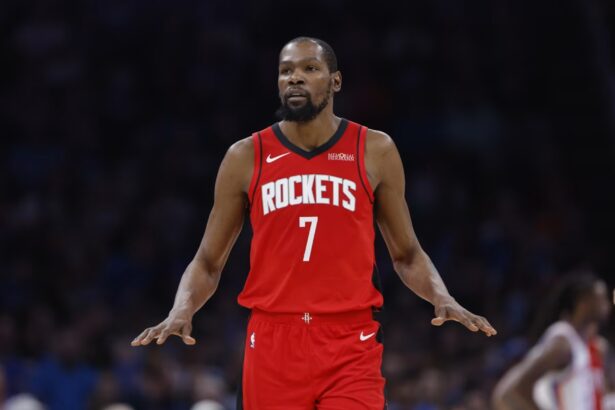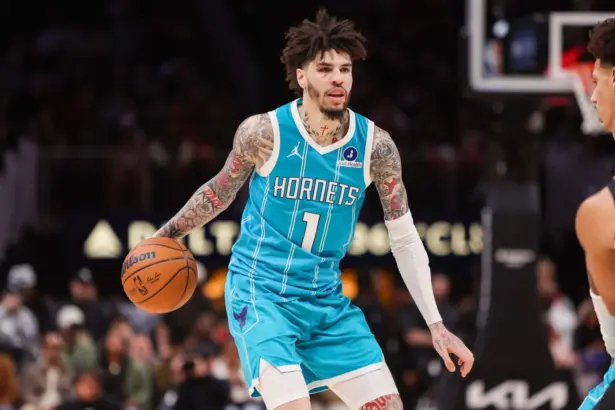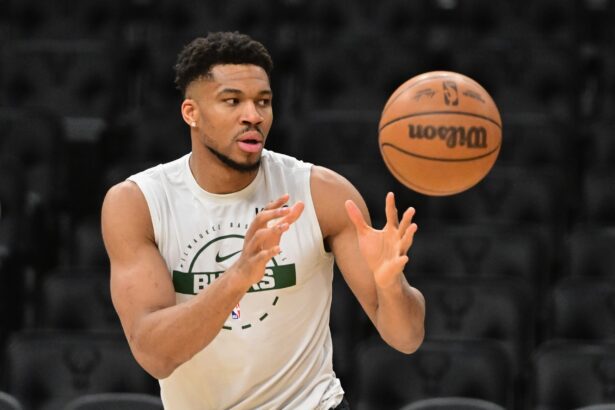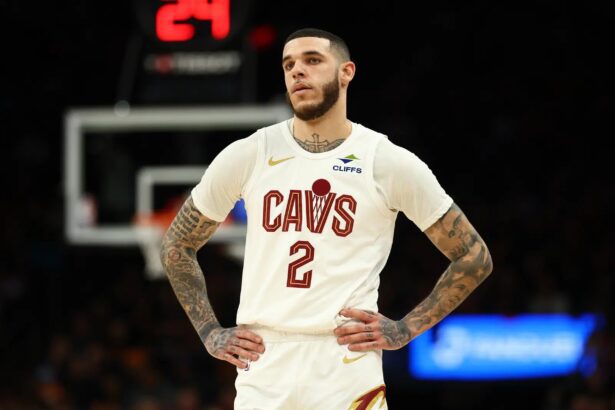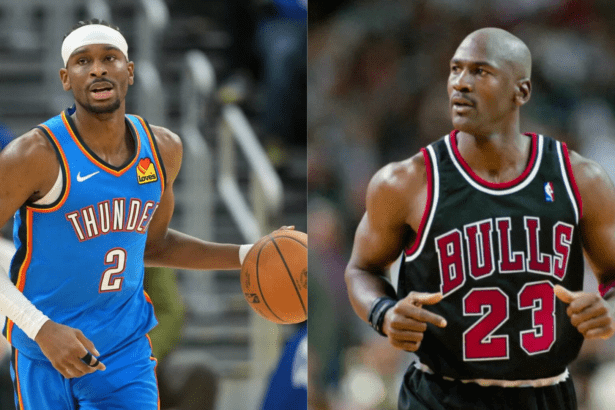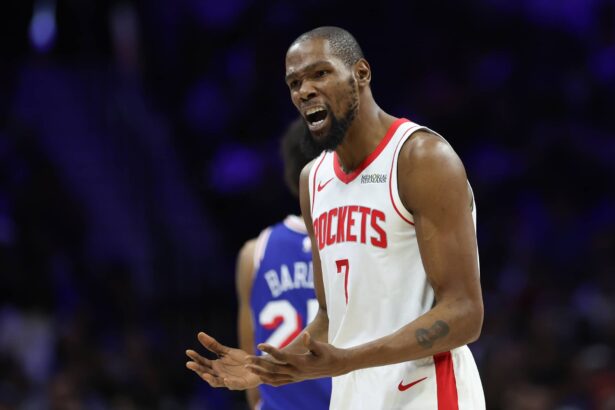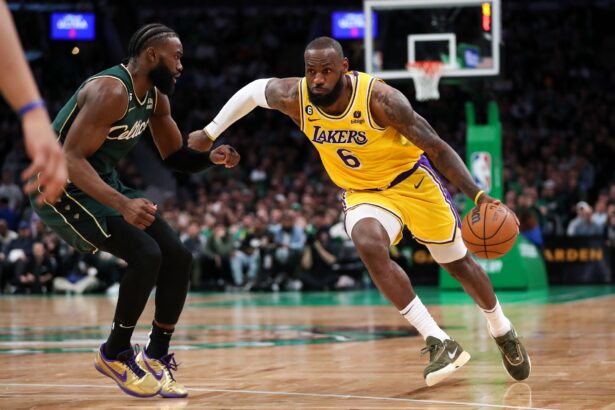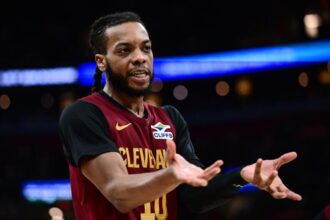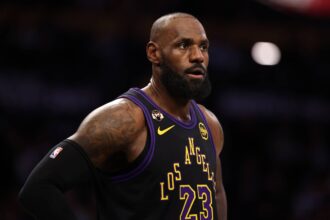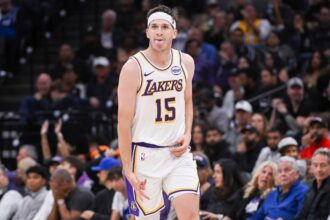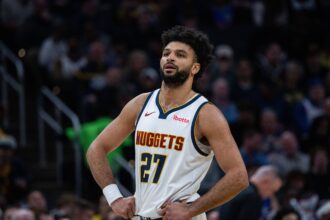The Los Angeles Lakers are a franchise defined by greatness, and the 21st century has been no different. With iconic players like Kobe Bryant, Pau Gasol, and now LeBron James, the Lakers have always had a superstar leading the charge. Each season brings a new hero, and as the team evolves, different players have stepped up to carry the purple and gold. In this article, we’ll take a look at the best player from each season since the year 2000, highlighting their performances, impact, and contributions to the Lakers’ legacy.
- 2000-01 Season – Shaquille O’Neal
- 2001-02 Season – Shaquille O’Neal
- 2002-03 Season – Kobe Bryant
- 2003-04 Season – Kobe Bryant
- 2004-05 Season – Kobe Bryant
- 2005-06 Season – Kobe Bryant
- 2006-07 Season – Kobe Bryant
- 2007-08 Season – Kobe Bryant
- 2008-09 Season – Kobe Bryant
- 2009-10 Season – Kobe Bryant
- 2010-11 Season – Kobe Bryant
- 2011-12 Season – Kobe Bryant
- 2012-13 Season – Kobe Bryant
- 2013-14 Season – Jodie Meeks
- 2014-15 Season – Kobe Bryant
- 2015-16 Season – Kobe Bryant
- 2016-17 Season – D’Angelo Russell
- 2017-18 Season – Julius Randle
- 2018-19 Season – LeBron James
- 2019-20 Season – LeBron James
- 2020-21 Season – LeBron James
- 2021-22 Season – LeBron James
- 2022-23 Season – LeBron James
- 2023-24 Season – LeBron James
2000-01 Season – Shaquille O’Neal
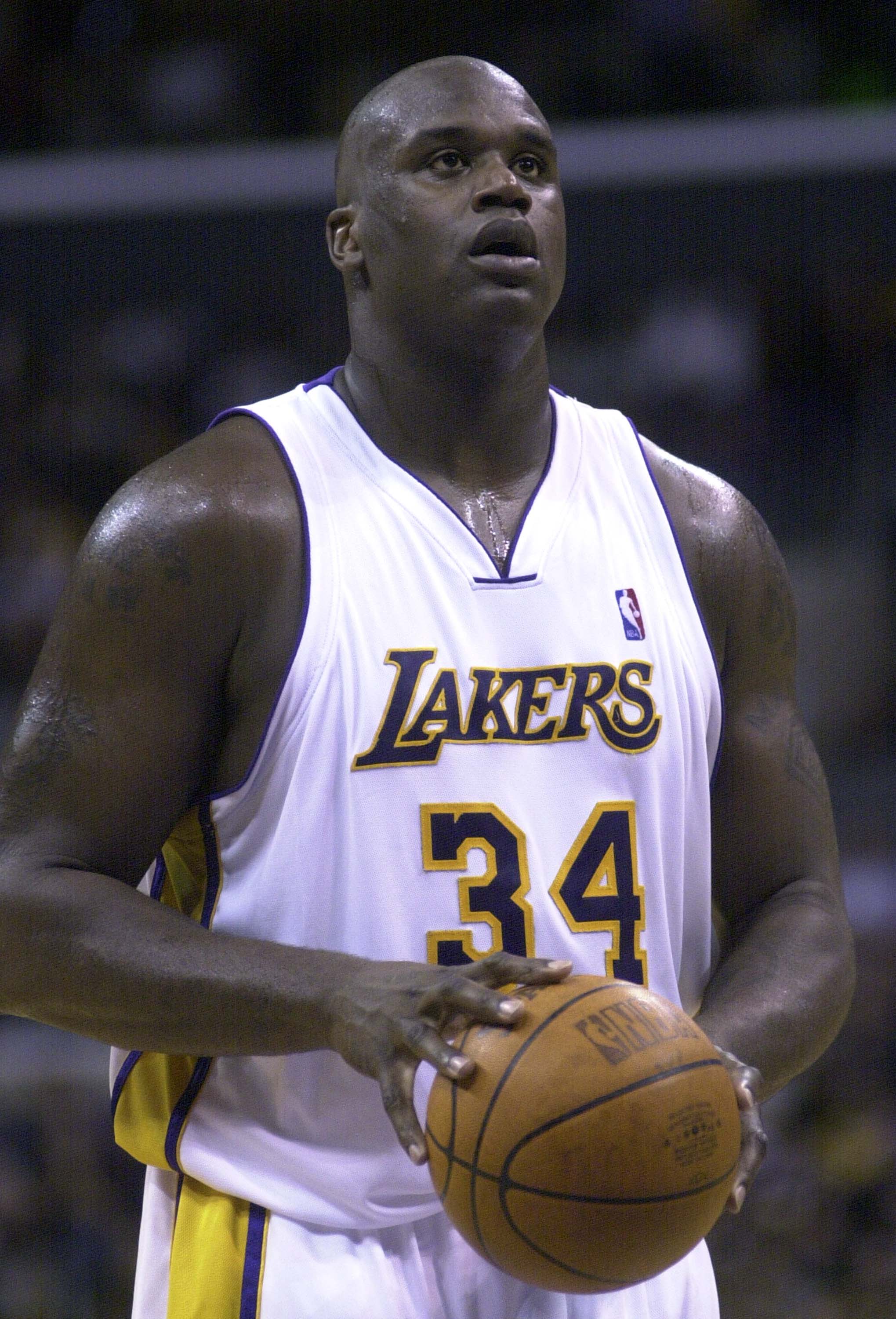
Stats: 28.7 PPG, 12.7 RPG, 3.7 APG, 0.6 SPG, 2.8 BPG
Achievements And Awards: NBA Champion, NBA Finals MVP, All-NBA First Team, All-Star, All-Defensive Second Team
Shaquille O’Neal was nothing short of a wrecking ball during the 2000-01 season. Not only did he dominate the paint, but his sheer physicality and skill made him the cornerstone of the Lakers’ back-to-back title campaign. Averaging close to 29 points per game and over 12 rebounds, Shaq was the heart of an offense that was nearly impossible to stop, especially when combined with Kobe Bryant. His ability to draw double-teams and still finish strong around the rim made him a nightmare for any opposing defense.
Shaq’s postseason run solidified his legacy, particularly in the Finals, where he averaged 33.0 points and 15.8 rebounds per game to sweep the Philadelphia 76ers. His Finals MVP performance was a masterclass in dominance, as he toyed with defenders in the paint, delivering one of the greatest individual playoff performances in history. With the Lakers going 15-1 in the playoffs, Shaq was the undisputed force behind this near-perfect postseason.
2001-02 Season – Shaquille O’Neal
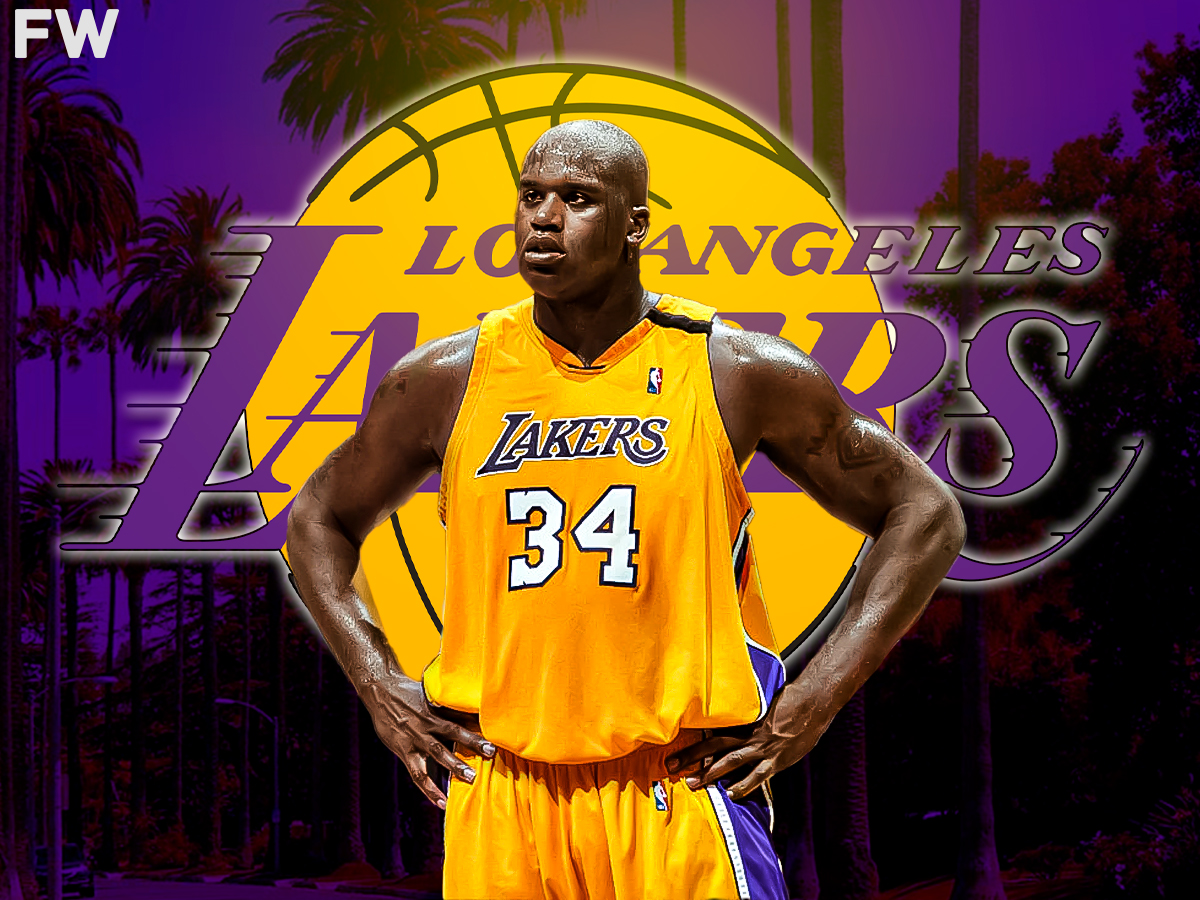
Stats: 27.2 PPG, 10.7 RPG, 3.0 APG, 0.6 SPG, 2.0 BPG
Achievements And Awards: NBA Champion, NBA Finals MVP, All-NBA First Team, All-Star
In the 2001-02 season, Shaquille O’Neal continued his reign as the most dominant force in basketball. Averaging 27.2 points and 10.7 rebounds per game, Shaq was once again the backbone of the Lakers’ offense and defense. He was incredibly efficient, shooting nearly 58% from the field, and his presence in the paint was unmatched. Even though the growing tension between him and Kobe Bryant was becoming a storyline, it didn’t stop Shaq from performing at an MVP level throughout the season. His dominance ensured the Lakers finished with a 58-24 record.
The playoffs were another showcase of Shaq’s brilliance, culminating in his third consecutive Finals MVP. In the Finals against the New Jersey Nets, he dominated, averaging 36.3 points and 12.3 rebounds per game, as the Lakers secured their third straight NBA championship with a 4-0 sweep. Shaq’s ability to impose his will in the paint was the key to the Lakers’ dynasty during the early 2000s.
2002-03 Season – Kobe Bryant

Stats: 30.0 PPG, 6.9 RPG, 5.9 APG, 2.2 SPG, 0.8 BPG
Achievements And Awards: All-NBA First Team, NBA All-Defensive First Team, All-Star
In the 2002-03 season, Kobe Bryant took on a larger offensive load, particularly during stretches where Shaquille O’Neal was sidelined. Kobe averaged an impressive 30.0 points per game, adding nearly 7 rebounds and 6 assists, proving that he was one of the most well-rounded players in the league. His defensive presence was also crucial, earning him a spot on the NBA All-Defensive First Team. Bryant’s scoring heroics were on full display with several 40-point games throughout the season, showcasing his ability to take over games on both ends of the floor.
Despite Kobe’s individual brilliance, the Lakers couldn’t replicate the success of previous seasons. They finished 50-32 and were knocked out of the playoffs in the second round by Tim Duncan’s Spurs, who would go on to win the championship. This marked a tough end to the season for the Lakers, but Kobe’s all-around excellence kept them competitive throughout.
2003-04 Season – Kobe Bryant
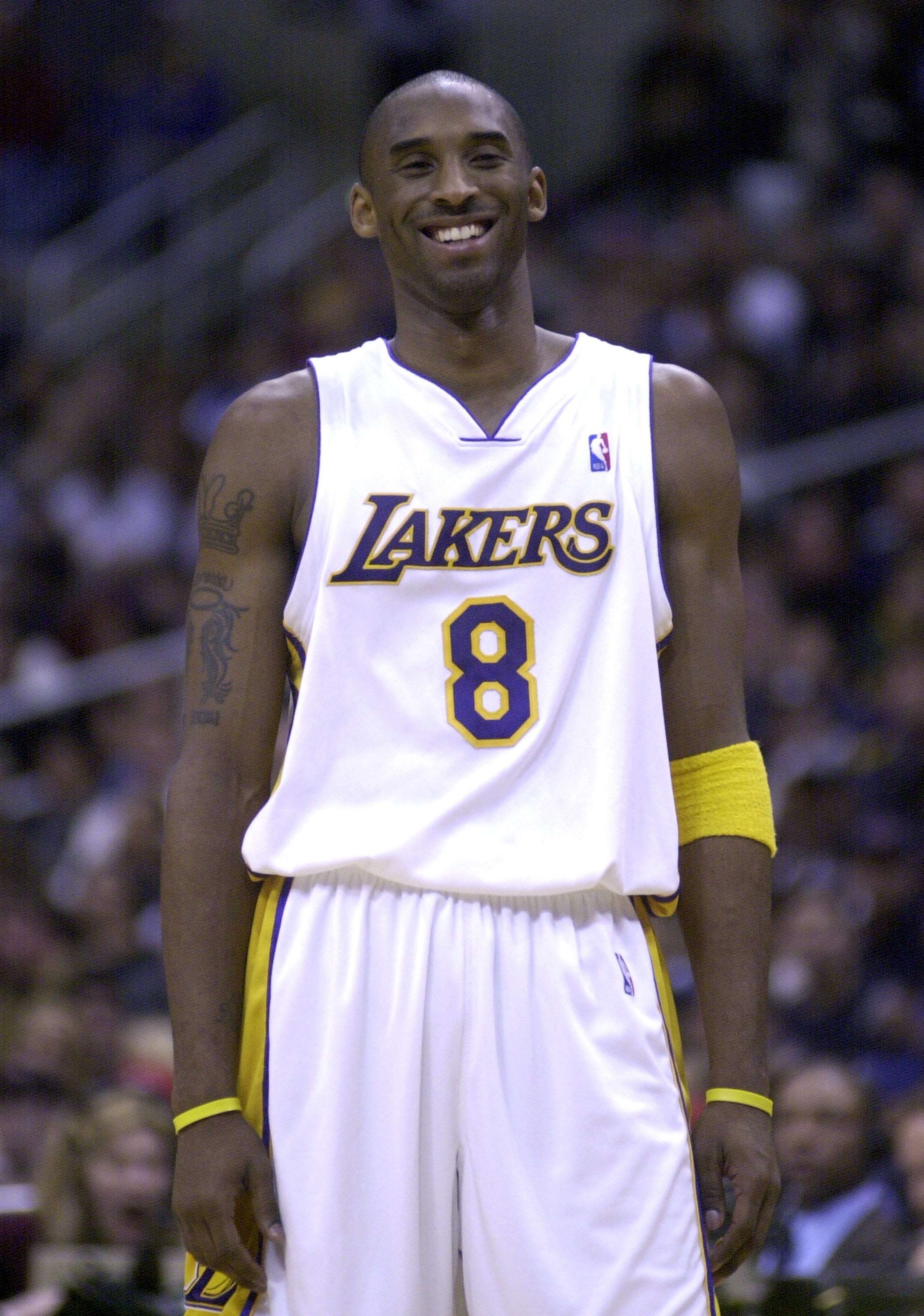
Stats: 24.0 PPG, 5.5 RPG, 5.1 APG, 1.7 SPG, 0.4 BPG
Achievements And Awards: All-NBA First Team, NBA All-Defensive First Team, All-Star
The 2003-04 season was the beginning of the end for the Lakers’ dynasty led by Kobe Bryant and Shaquille O’Neal. Despite the addition of Hall of Famers Karl Malone and Gary Payton, Kobe remained a key player, averaging 24.0 points, 5.5 rebounds, and 5.1 assists per game. His offensive game was as sharp as ever, but what stood out even more this season was his defense, earning him a spot on the NBA All-Defensive First Team. Off-court drama, including tensions with Shaq and legal issues, didn’t stop Kobe from maintaining his elite status in the league.
The Lakers finished the season with a solid 56-26 record, and although they made it to the NBA Finals, they were upset by the Detroit Pistons in five games. It was a tough ending for the Lakers’ star-studded lineup, and the offseason that followed saw major changes, with Shaq being traded to Miami, signaling the end of their dominant run.
2004-05 Season – Kobe Bryant

Stats: 27.6 PPG, 5.9 RPG, 6.0 APG, 1.3 SPG, 0.8 BPG
Achievements And Awards: All-NBA Third Team, All-Star
The 2004-05 season marked a tough transition for the Lakers after Shaquille O’Neal’s departure to Miami. With Kobe Bryant now the clear leader of the team, he put up impressive numbers, averaging 27.6 points, 5.9 rebounds, and 6.0 assists per game. Despite his individual brilliance, the team struggled without Shaq’s presence in the paint. Bryant shouldered the bulk of the offensive load, playing a league-leading 40.7 minutes per game while attempting to guide a roster that included Lamar Odom and Caron Butler.
Unfortunately, the season ended in disappointment as the Lakers missed the playoffs for the first time since 1994, finishing with a 34-48 record. The chemistry was not quite there, and the team underwent coaching changes as Rudy Tomjanovich stepped down midseason. Kobe’s All-NBA Third Team selection highlighted his individual excellence, but the season was a reminder of how challenging it would be to rebuild without Shaq.
2005-06 Season – Kobe Bryant
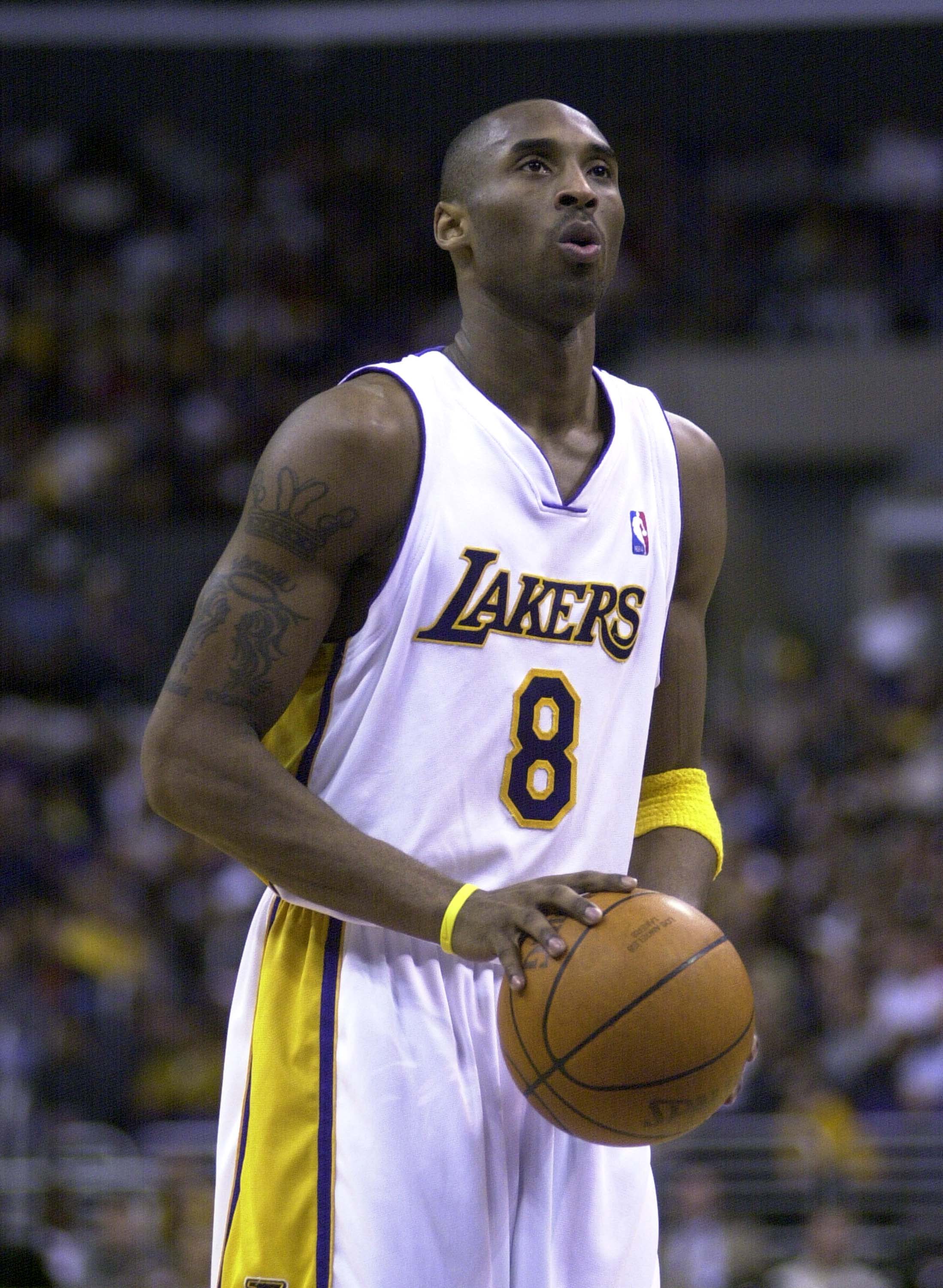
Stats: 35.4 PPG, 5.3 RPG, 4.5 APG, 1.8 SPG, 0.4 BPG
Achievements And Awards: All-NBA First Team, NBA Scoring Champion, All-Star
The 2005-06 season was all about Kobe Bryant going off. He led the NBA in scoring, averaging 35.4 points per game, and had that crazy 81-point game against the Raptors, which is still talked about today. Kobe was unstoppable, taking on most of the offensive load for the Lakers, while also grabbing boards and dishing out assists.
The Lakers ended the season with a 45-37 record and made the playoffs as the 7th seed. Even though Kobe did everything he could, the team fell to the Phoenix Suns in seven games in the first round. This was the year where Kobe’s dominance was on full display, showing everyone just how lethal he could be on the court.
2006-07 Season – Kobe Bryant

Stats: 31.6 PPG, 5.7 RPG, 5.4 APG, 1.4 SPG, 0.5 BPG
Achievements And Awards: All-NBA First Team, NBA Scoring Champion, All-Star, All-Star Game MVP
Kobe was on fire during the 2006-07 season, once again leading the NBA in scoring with 31.6 points per game. He had several explosive performances, including a 65-point game against the Portland Trail Blazers and back-to-back 50+ point games. The Lakers ended with a 42-40 record, but Kobe’s efforts weren’t enough to carry them beyond the first round, as they lost to the Suns in the playoffs. It was clear the team needed more around him to make a deep playoff run.
Kobe also continued to show his all-around game, adding over 5 rebounds and 5 assists per contest while logging heavy minutes at 40.8 per game. This season was another testament to Kobe’s ability to dominate offensively while keeping the Lakers competitive, though the lack of a strong supporting cast was still evident.
2007-08 Season – Kobe Bryant
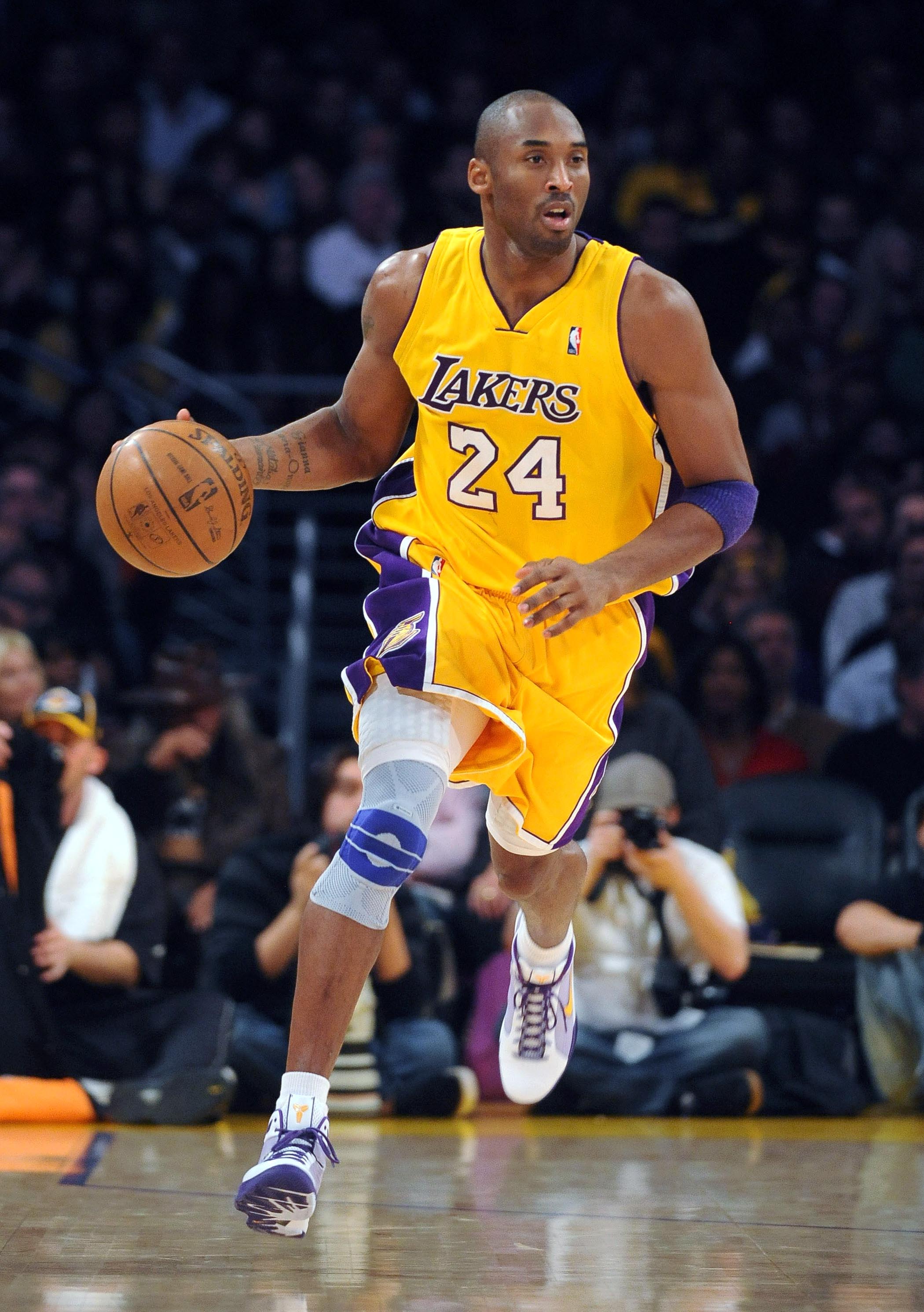
Stats: 28.3 PPG, 6.3 RPG, 5.4 APG, 1.8 SPG, 0.5 BPG
Achievements And Awards: NBA MVP, All-NBA First Team, NBA Champion, All-Star
The 2007-08 season was a special one for Kobe, as he finally earned the NBA MVP award after leading the Lakers to a 57-25 record. Kobe’s play was stellar as always, but this year, with the help of new teammate Pau Gasol, the Lakers had the balance and depth they needed. Bryant averaged 28.3 points, along with over 6 rebounds and 5 assists, and led the team to the NBA Finals, where they fell to the Celtics.
This season marked a turning point for the Lakers, who became title contenders once again with a solid roster surrounding Kobe. His leadership and consistent dominance on both ends of the court were key to the Lakers’ resurgence.
2008-09 Season – Kobe Bryant
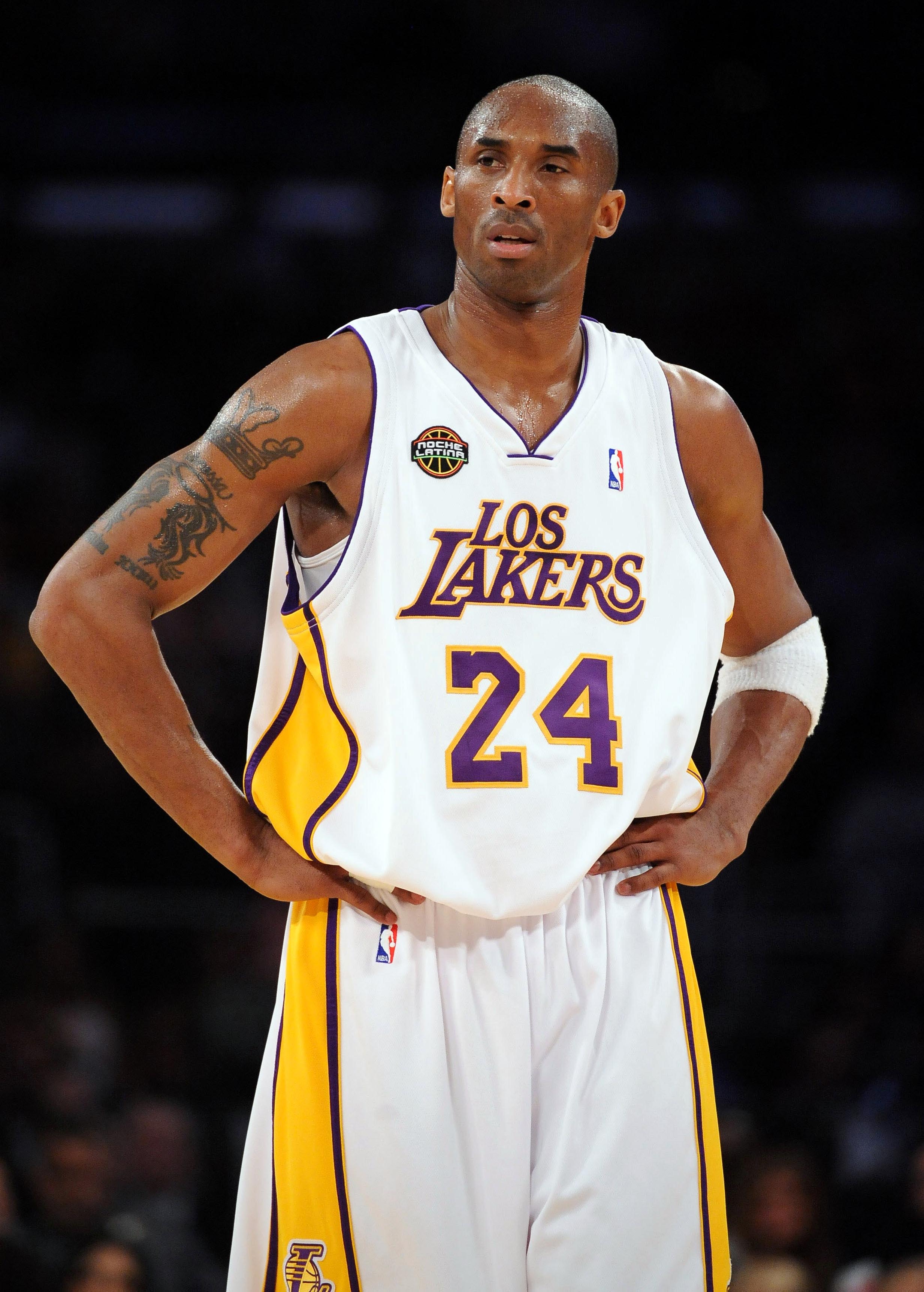
Stats: 26.8 PPG, 5.2 RPG, 4.9 APG, 1.5 SPG, 0.5 BPG
Achievements And Awards: NBA Champion, NBA Finals MVP, All-NBA First Team, All-Star, All-Star Game MVP
The 2008-09 season was one of Kobe Bryant’s finest moments, as he led the Lakers to their 15th championship. Kobe averaged 26.8 points per game during the regular season and continued his dominance in the playoffs, capping it off with an NBA Finals MVP performance. His leadership on both ends of the court helped the Lakers secure a 65-17 record, one of the best in franchise history. With Pau Gasol and a solid supporting cast, Kobe was able to reclaim the title and win his first championship without Shaq.
Kobe’s standout moments included multiple high-scoring games and his consistent ability to take over when needed. His 61-point game against the New York Knicks was one of the highlights of the season. His Finals performance against the Orlando Magic solidified his status as one of the greatest to ever play the game, averaging 32.4 points in the series.
2009-10 Season – Kobe Bryant
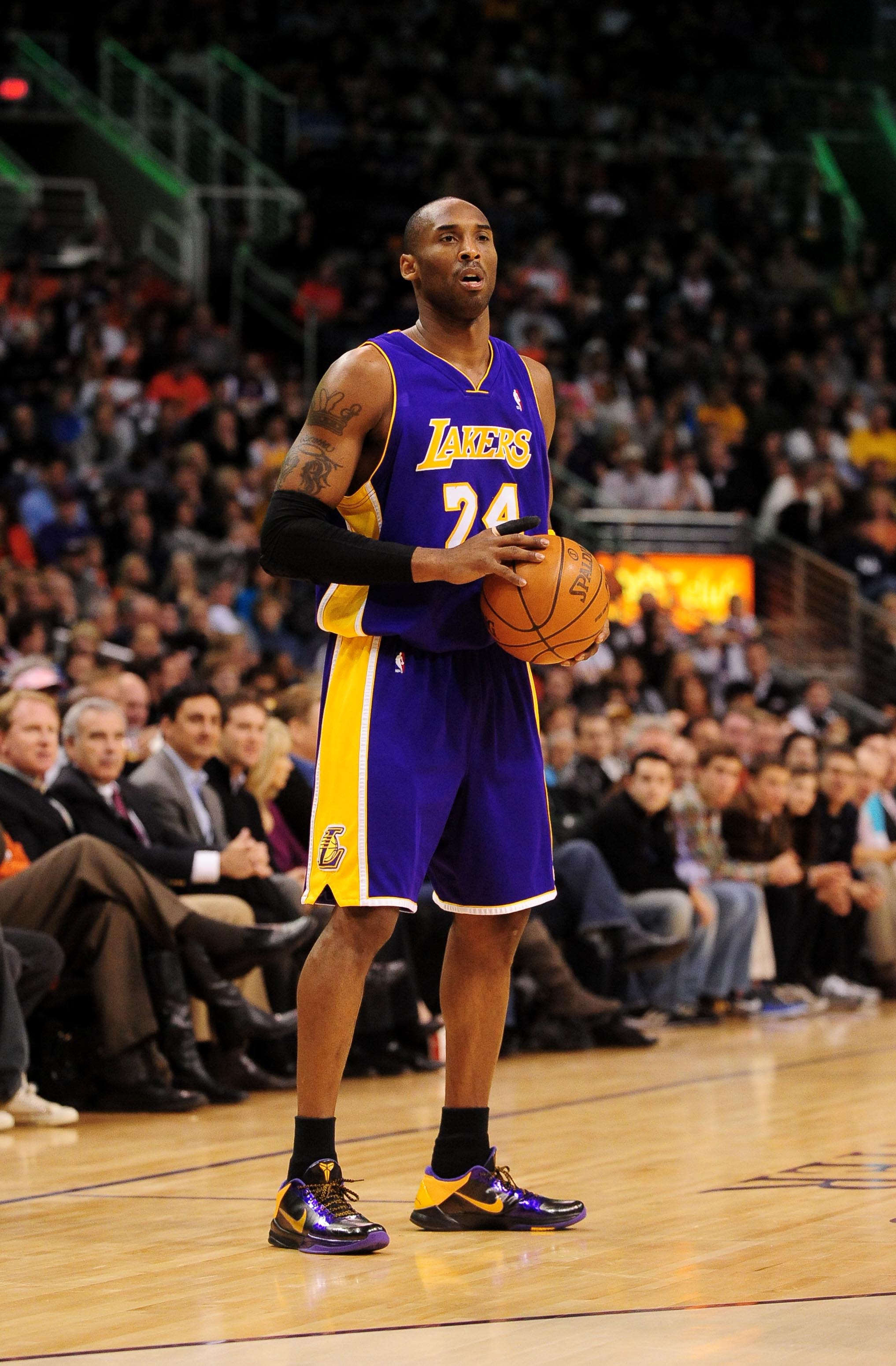
Stats: 27.0 PPG, 5.4 RPG, 5.0 APG, 1.5 SPG, 0.3 BPG
Achievements And Awards: NBA Champion, NBA Finals MVP, All-NBA First Team, All-Star
Kobe followed up the 2009 championship with another incredible season in 2009-10. He averaged 27 points per game, and once again, his ability to dominate in the clutch was on full display. The Lakers finished with a 57-25 record and returned to the NBA Finals, where Kobe led the team to a Game 7 victory over the Boston Celtics, earning him his fifth NBA title and second consecutive Finals MVP.
This season was marked by Kobe’s leadership and resilience, as he played through several injuries, including a broken finger. He still managed to deliver in big moments, especially during the Finals, where he averaged 28.6 points and cemented his legacy as one of the greatest players of all time.
2010-11 Season – Kobe Bryant

Stats: 25.3 PPG, 5.1 RPG, 4.7 APG, 1.2 SPG, 0.3 BPG
Achievements And Awards: All-NBA First Team, All-Star, NBA All-Star Game MVP, All-Defensive First Team
Kobe Bryant continued his dominance in the 2010-11 season, leading the Lakers with 25.3 points per game. He added to his extensive list of accolades by earning another All-Star selection, where he put on a show and took home the MVP trophy after a stellar performance. His consistent contributions also earned him All-NBA First Team and All-Defensive First Team honors, proving that even at this stage of his career, he was still one of the best on both ends of the floor.
The Lakers finished the season with a 57-25 record, securing the second seed in the Western Conference. There were high expectations for a third consecutive championship, but the playoffs took an unexpected turn. After defeating the New Orleans Hornets in the first round, the Lakers were shockingly swept by the Dallas Mavericks in the second round, a result that marked the end of the Phil Jackson era in Los Angeles.
2011-12 Season – Kobe Bryant
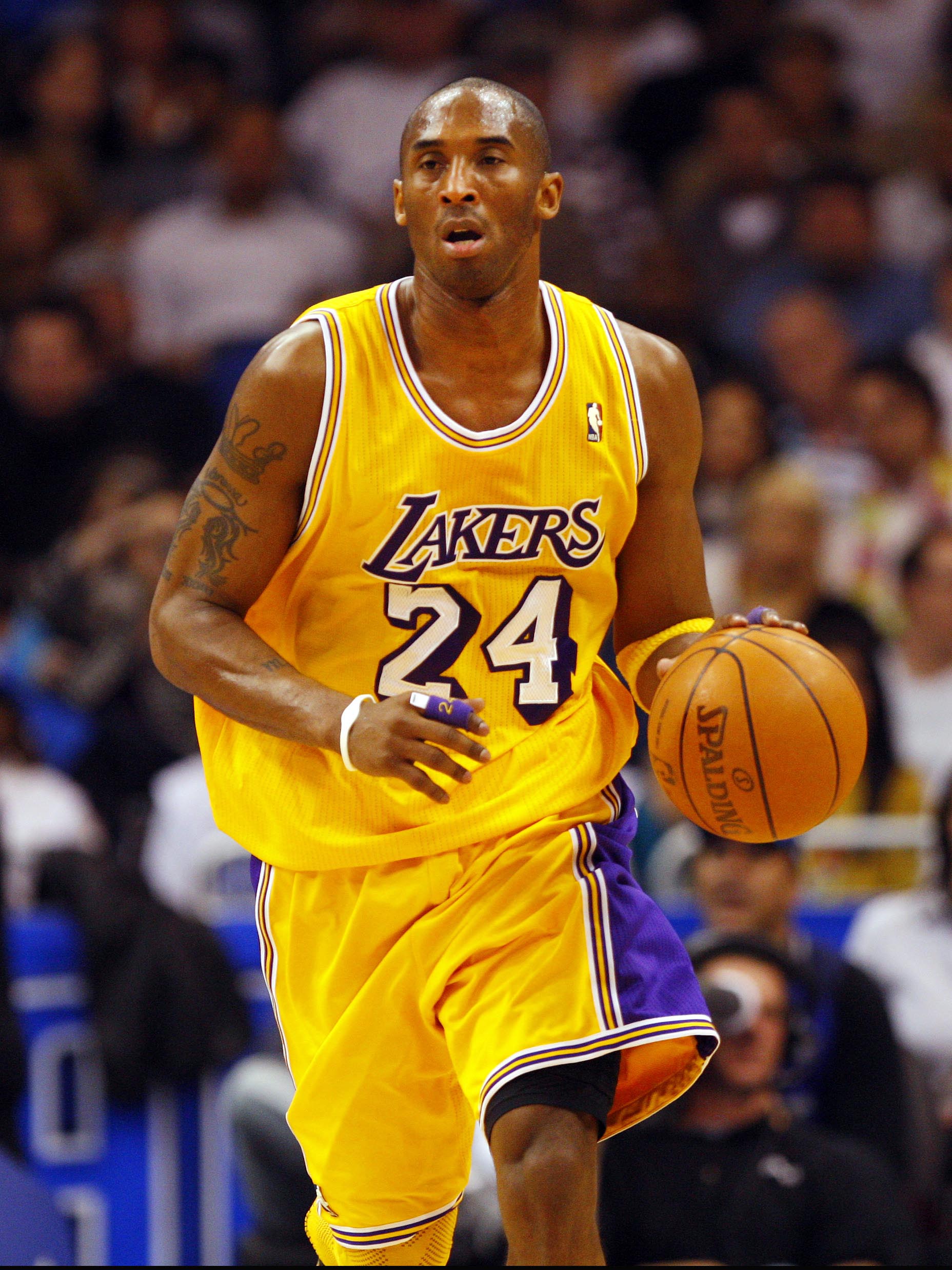
Stats: 27.9 PPG, 5.4 RPG, 4.6 APG, 1.2 SPG, 0.3 BPG
Achievements And Awards: All-NBA First Team, All-Star, All-Defensive Second Team
In the lockout-shortened 2011-12 season, Kobe Bryant put on a scoring clinic, averaging 27.9 points per game, which was among the best in the league. He was named to the All-Star team for the 14th time, showcasing his longevity and continued excellence. Kobe remained the heart and soul of the Lakers, playing in 58 of the 66 games, and once again earned All-NBA First Team honors. His defensive contributions also stood out, as he was named to the All-Defensive Second Team.
The Lakers finished with a 41-25 record, good enough for the third seed in the West. In the playoffs, they faced tough competition, getting past the Denver Nuggets in the first round but falling to the younger and faster Oklahoma City Thunder in the second round. Kobe’s individual brilliance was on full display, but the Lakers struggled to keep up with the pace and energy of the Thunder.
2012-13 Season – Kobe Bryant
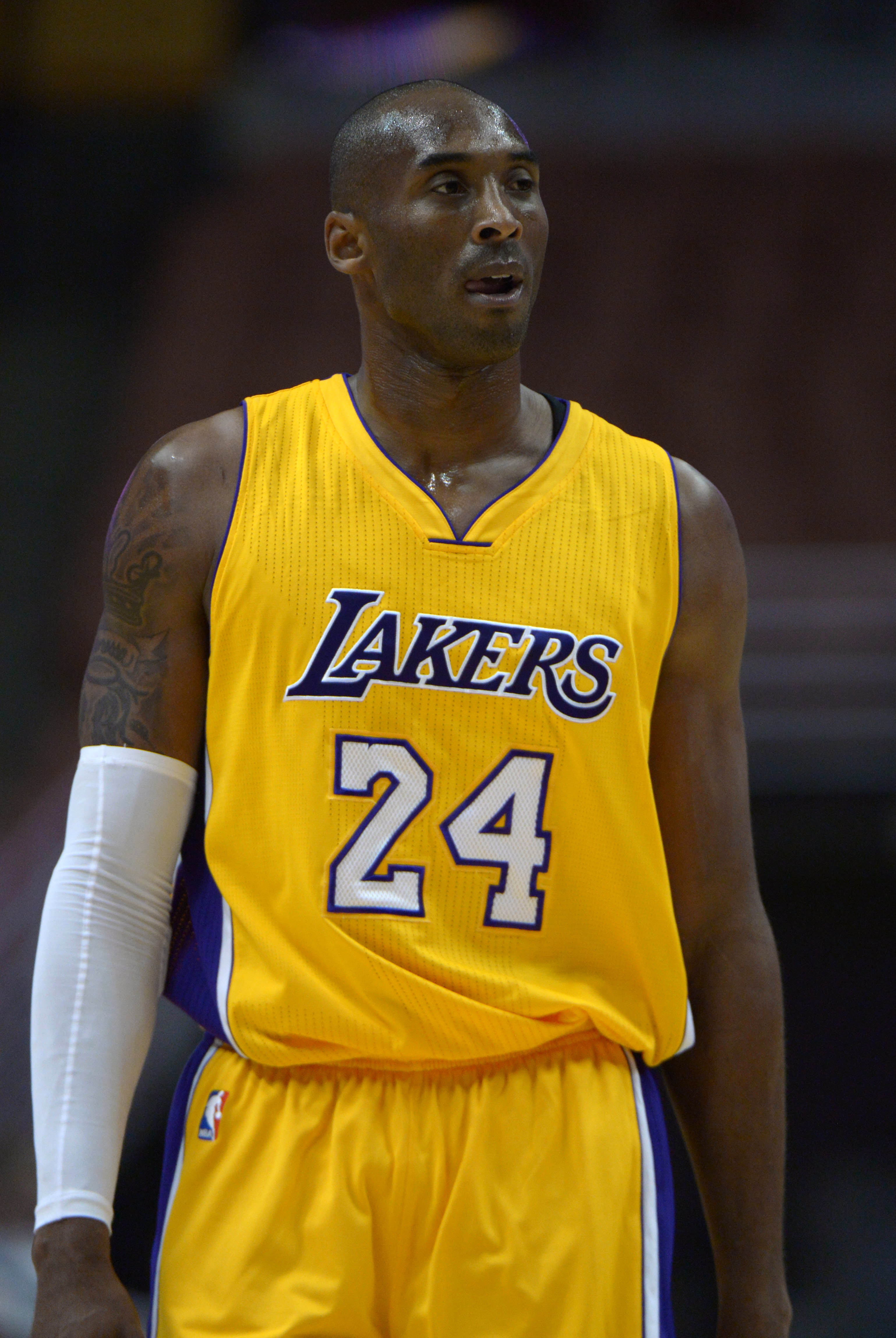
Stats: 27.3 PPG, 5.6 RPG, 6.0 APG, 1.4 SPG, 0.3 BPG
Achievements And Awards: All-NBA First Team, All-Star
The 2012-13 season was a rollercoaster for Kobe Bryant and the Lakers. With new teammates Dwight Howard and Steve Nash, there were high hopes, but injuries and chemistry issues led to a disappointing 45-37 record. Kobe, however, was incredible, averaging 27.3 points per game while also contributing 5.6 rebounds and 6.0 assists. He played an exhausting 38.6 minutes per game, often willing the Lakers into the playoff race. His determination culminated in an impressive run toward the end of the season, where he put up several high-scoring games to secure a playoff spot for the Lakers.
Tragically, Kobe’s season ended abruptly when he tore his Achilles tendon in a late-season game against the Warriors. This injury kept him out of the playoffs, where the Lakers were swept in the first round by the San Antonio Spurs.
2013-14 Season – Jodie Meeks
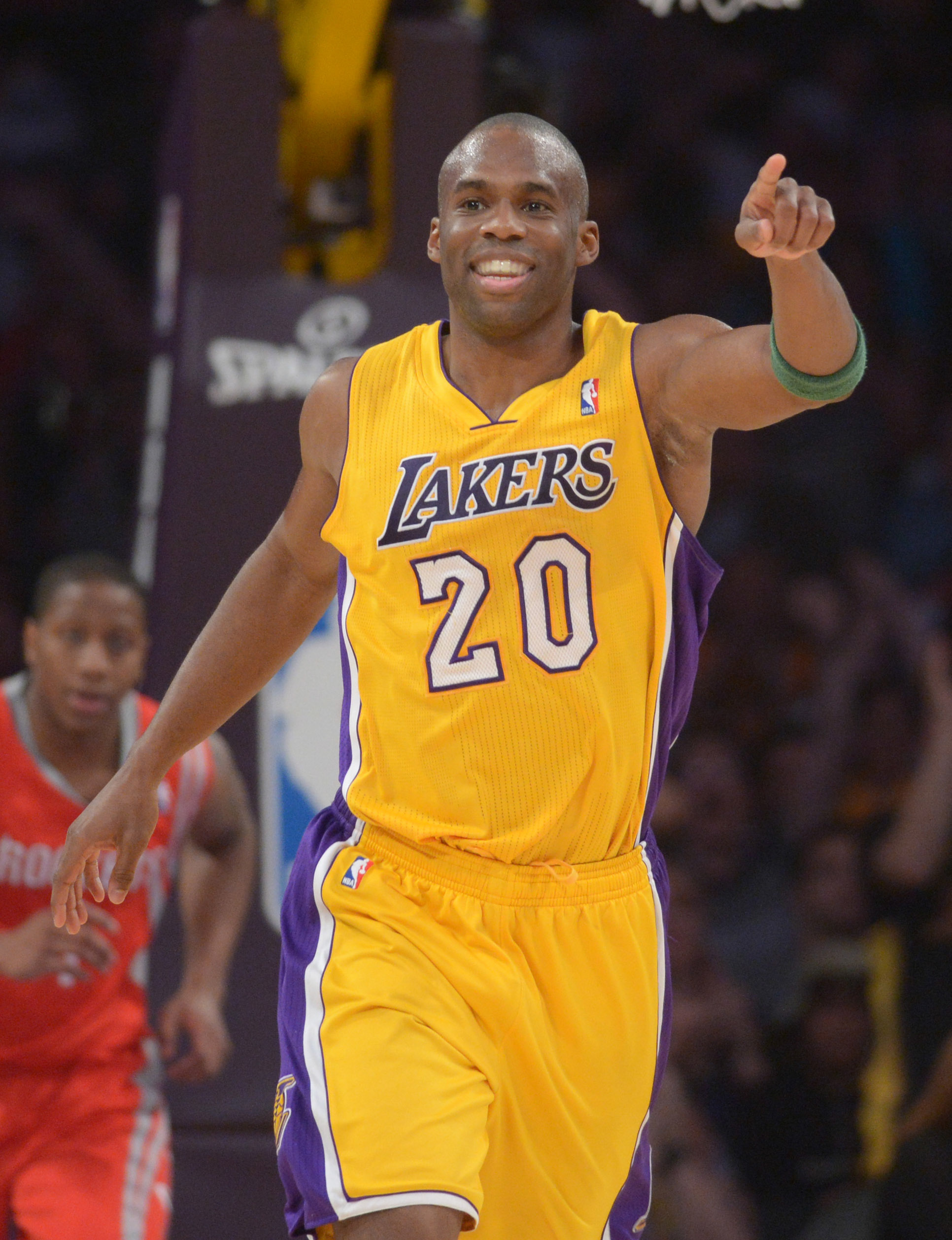
Stats: 15.7 PPG, 2.5 RPG, 1.8 APG, 1.4 SPG
Achievements And Awards: None
With Kobe Bryant sidelined for most of the season, Jodie Meeks stepped up as the Lakers’ leading scorer in the 2013-14 campaign. He averaged 15.7 points per game, showing improved shooting, particularly from beyond the arc, hitting 40.1% of his three-point attempts. Meeks’ consistency and ability to stretch the floor provided some bright spots during an otherwise tough season for the Lakers. The team finished with a 27-55 record, missing the playoffs and marking one of their worst seasons in recent history.
Meeks had several standout performances, including a career-high 42 points against the Oklahoma City Thunder. Despite the Lakers’ struggles, Meeks’ breakout year showed that he could be a valuable scorer in the league
2014-15 Season – Kobe Bryant
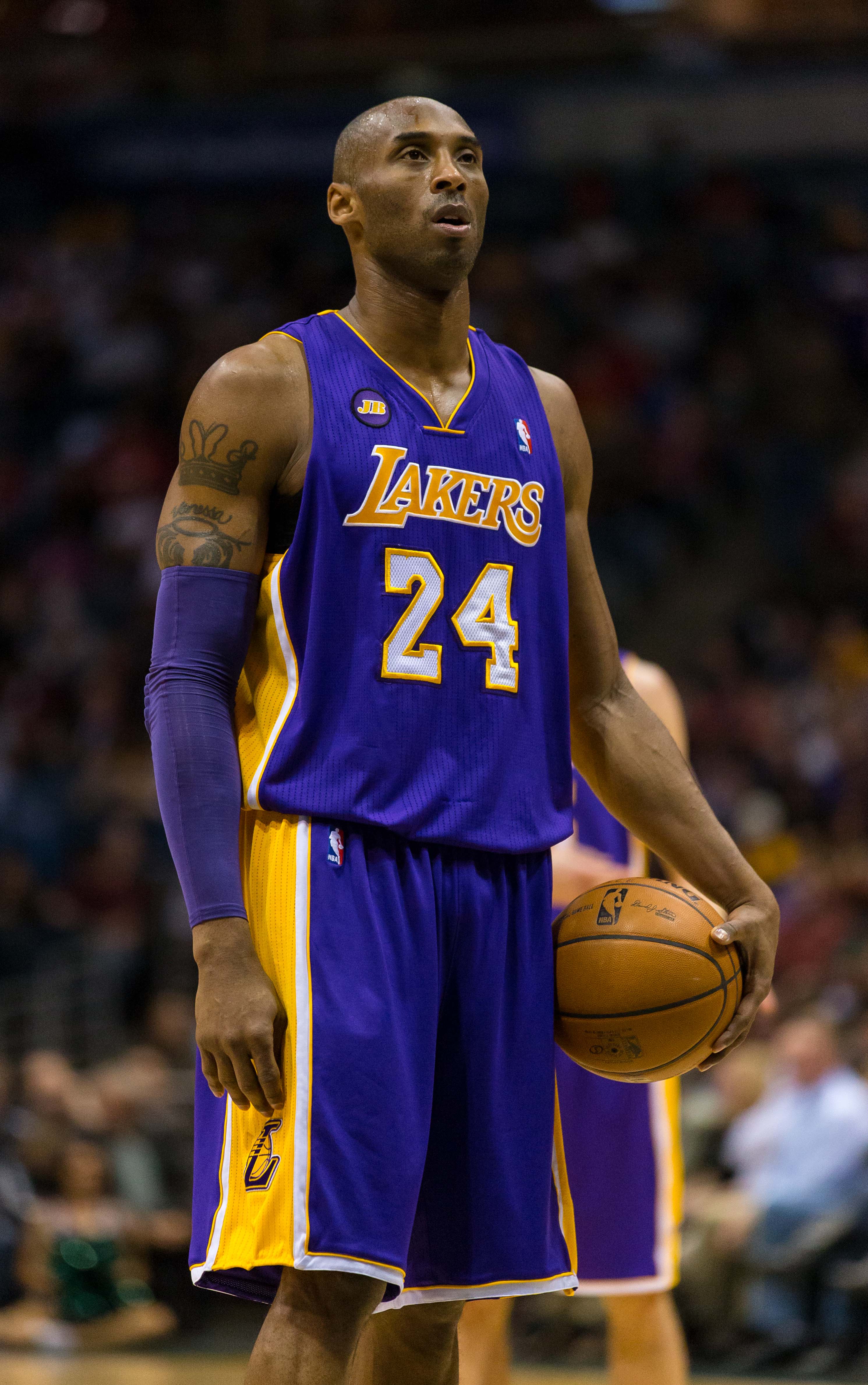
Stats: 22.3 PPG, 5.7 RPG, 5.6 APG, 1.3 SPG, 0.2 BPG
Achievements And Awards: All-Star
In the 2014-15 season, Kobe was still the man for the Lakers, even though his body was showing signs of wear and tear. He averaged 22.3 points, 5.7 rebounds, and 5.6 assists per game in 35 games before a torn rotator cuff ended his season early. Kobe kicked off the season with some classic scoring performances, including a 44-point explosion against the Warriors, proving he could still dominate on the offensive end. His leadership and presence on the court earned him a 17th All-Star appearance, where fans and players celebrated his legacy.
The Lakers, unfortunately, struggled without Kobe’s presence, finishing with a 21-61 record, one of the worst in franchise history. Kobe’s season-ending injury was a tough blow, and the team could never recover. This marked another chapter in the painful post-championship era for the Lakers, as they continued to rebuild around young talent.
2015-16 Season – Kobe Bryant
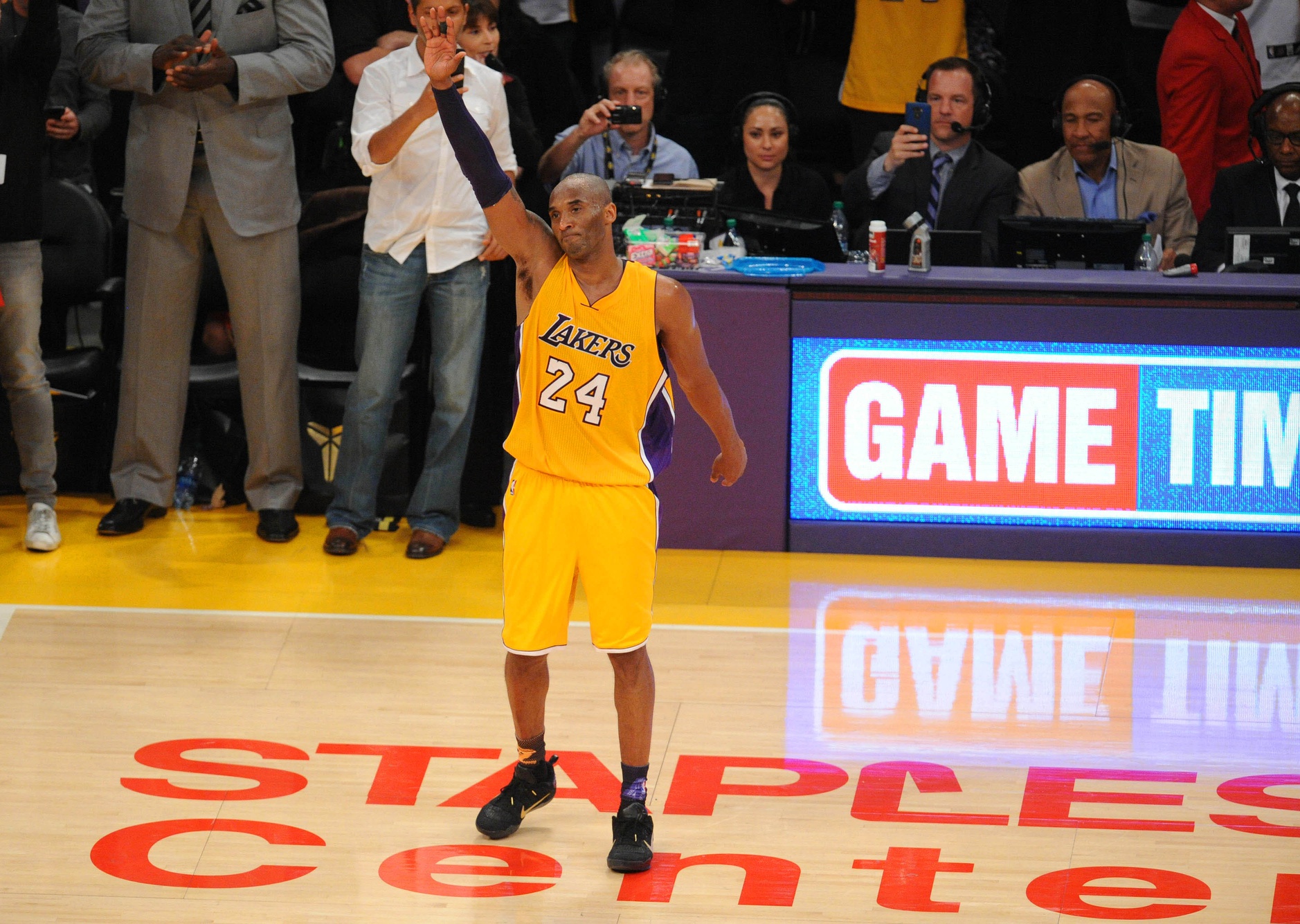
Stats: 17.6 PPG, 3.7 RPG, 2.8 APG, 0.9 SPG, 0.2 BPG
Achievements And Awards: All-Star
The 2015-16 season was all about Kobe’s farewell tour. He wasn’t the dominant force of old, but he still managed to average 17.6 points over 66 games. Everywhere the Lakers went, it felt like a celebration of Kobe’s legendary career. He was voted into his 18th All-Star Game, where he got one last run with the league’s best, and his farewell tour became one of the most memorable in NBA history. The Lakers were one of the worst teams in the league, but that didn’t stop fans from showing up to say goodbye to their icon.
The highlight of the season? Kobe’s insane 60-point game in his final appearance against the Utah Jazz. It was the perfect ending for one of the game’s all-time greats, showing he could still turn back the clock when it mattered most. Even though the Lakers finished 17-65, the season was more about celebrating Kobe than anything else.
2016-17 Season – D’Angelo Russell
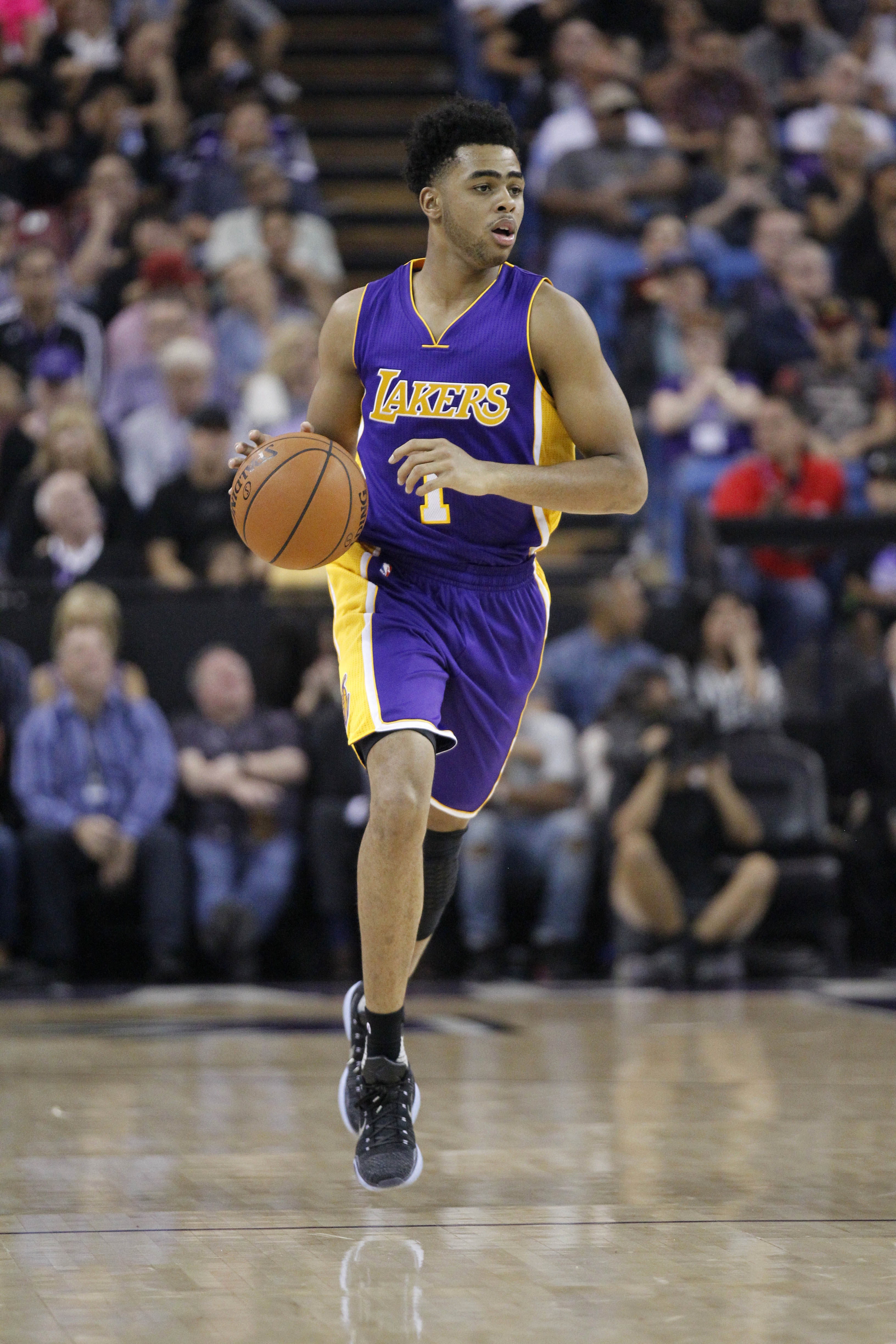
Stats: 15.6 PPG, 3.5 RPG, 4.8 APG, 1.4 SPG, 0.3 BPG
Achievements And Awards: None
The 2016-17 season saw D’Angelo Russell step into a bigger role for the Lakers as they tried to rebuild after the Kobe Bryant era. Russell averaged 15.6 points, 3.5 rebounds, and 4.8 assists per game, showcasing his ability to score and create for his teammates. He also contributed 1.4 steals and 0.3 blocks per game, showing some improvement on the defensive end. While Russell showed flashes of star potential, he was still inconsistent at times, and turnovers (2.8 per game) were a challenge as he adjusted to being the focal point of the offense.
The Lakers had a tough season, finishing 26-56, but Russell’s development was a bright spot. He had some big scoring nights and showed he could be a key piece for the future. However, his time with the Lakers came to an end when he was traded to the Brooklyn Nets that offseason, a move that surprised many.
2017-18 Season – Julius Randle
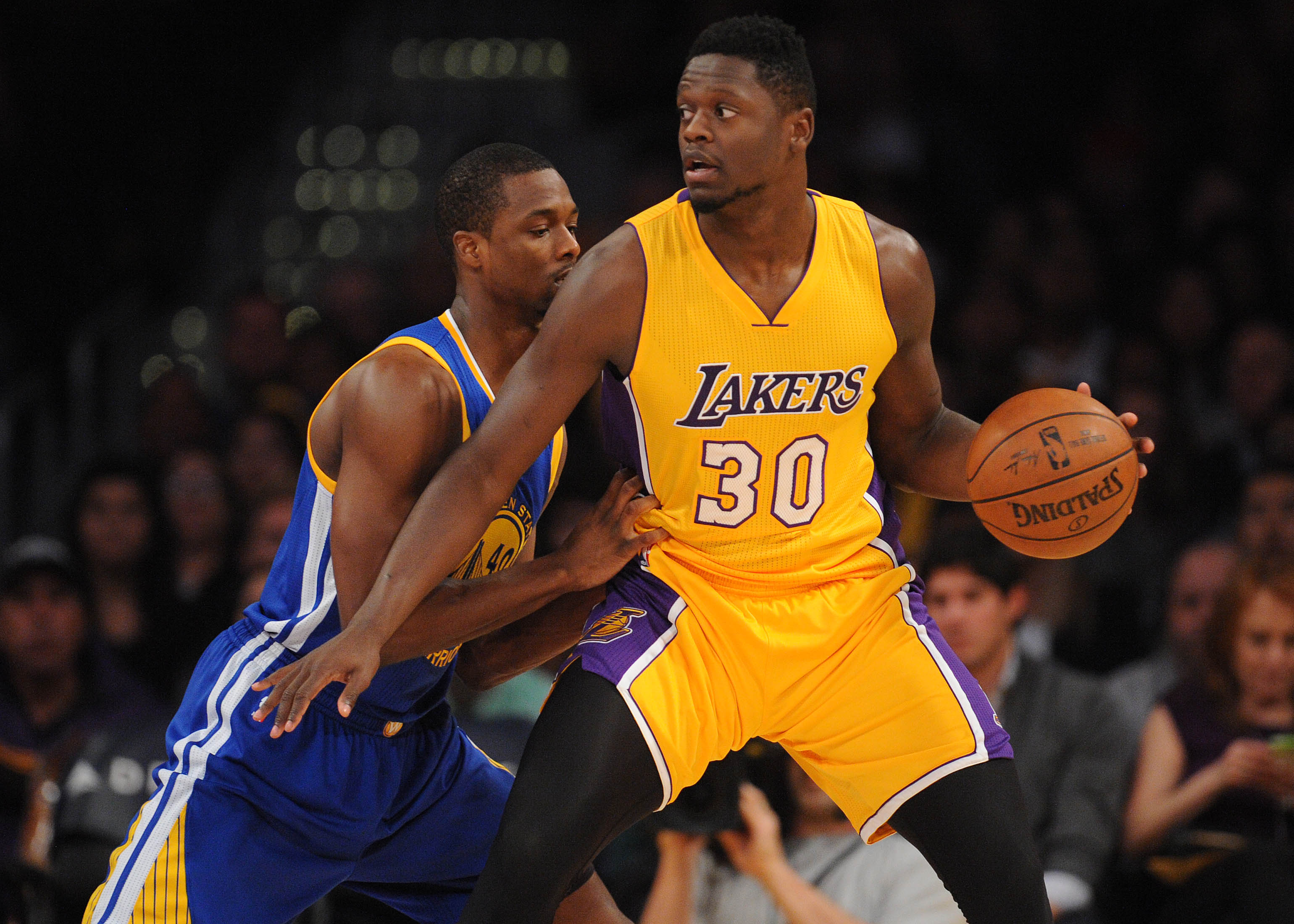
Stats: 16.1 PPG, 8.0 RPG, 2.6 APG, 0.5 SPG, 0.5 BPG
Achievements And Awards: None
Julius Randle really took his game to the next level in the 2017-18 season, averaging career highs in points and rebounds. He put up 16.1 points per game along with 8.0 rebounds, adding 0.5 blocks per contest. His physicality around the rim and his ability to finish through contact made him a consistent presence in the Lakers’ lineup, playing all 82 games. Randle’s energy and hustle on both ends of the floor made him one of the team’s most reliable players.
Even though the Lakers didn’t make the playoffs, finishing with a 35-47 record, Randle’s improvement was a bright spot. He showed he could be a centerpiece for the team’s future, though he ended up leaving the Lakers in free agency after the season. His breakout year gave him the confidence and skill set to take his game to another level.
2018-19 Season – LeBron James
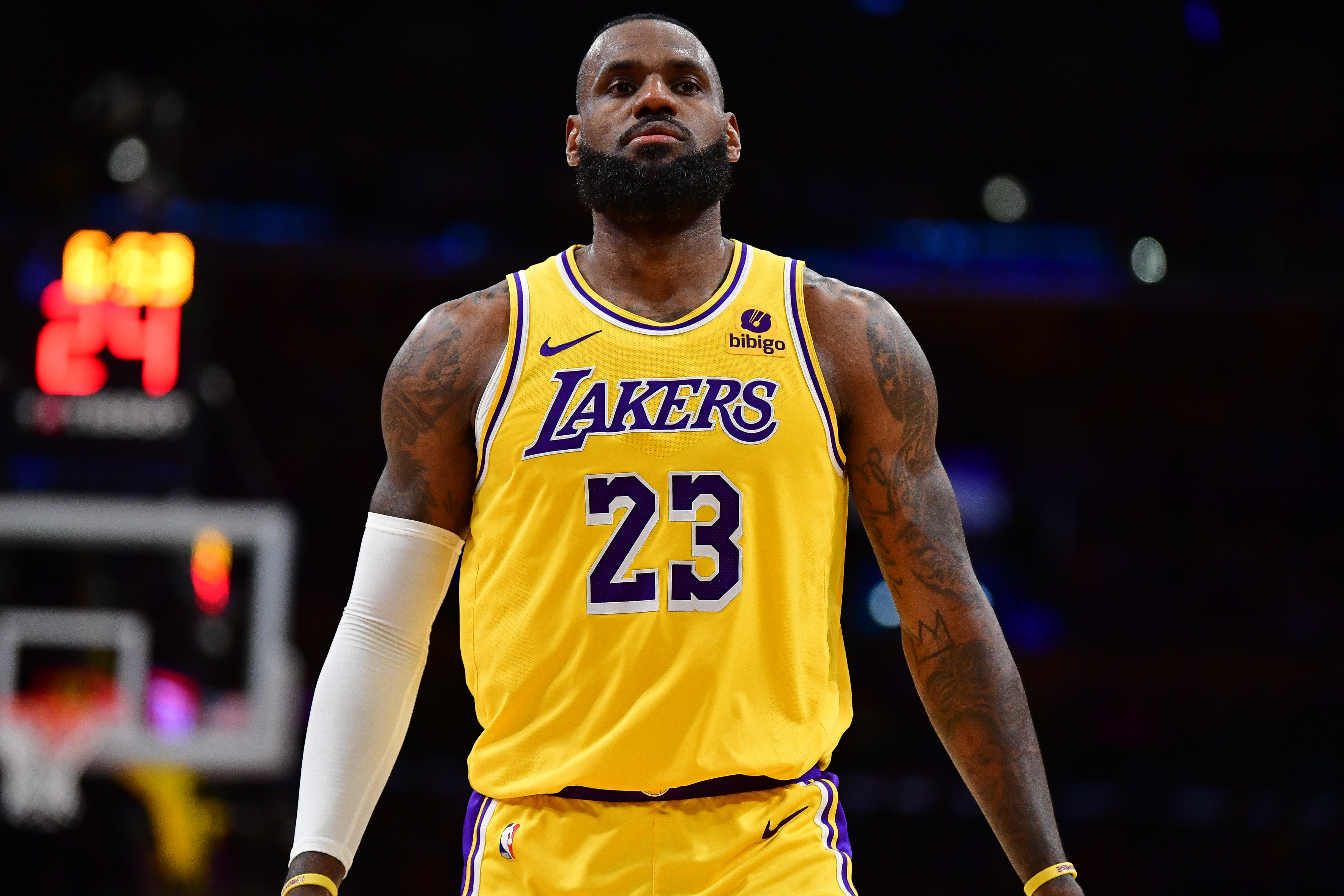
Stats: 27.4 PPG, 8.5 RPG, 8.3 APG, 1.3 SPG, 0.6 BPG
Achievements And Awards: All-Star, All-NBA Third Team
LeBron James’ first season with the Lakers brought excitement, but injuries derailed what could have been a promising year. He averaged 27.4 points, 8.5 rebounds, and 8.3 assists over 55 games, putting up impressive numbers despite missing time due to a groin injury. LeBron was selected for the All-Star Game for the 15th time and earned a spot on the All-NBA Third Team, continuing his streak of being one of the league’s top performers.
The Lakers struggled to find consistency without LeBron, and the team finished with a 37-45 record, missing the playoffs. It was the first time since 2005 that LeBron didn’t participate in the postseason. While the year was a disappointment for the franchise, it was clear that LeBron still had plenty left in the tank, and the Lakers were gearing up for bigger moves in the offseason.
2019-20 Season – LeBron James
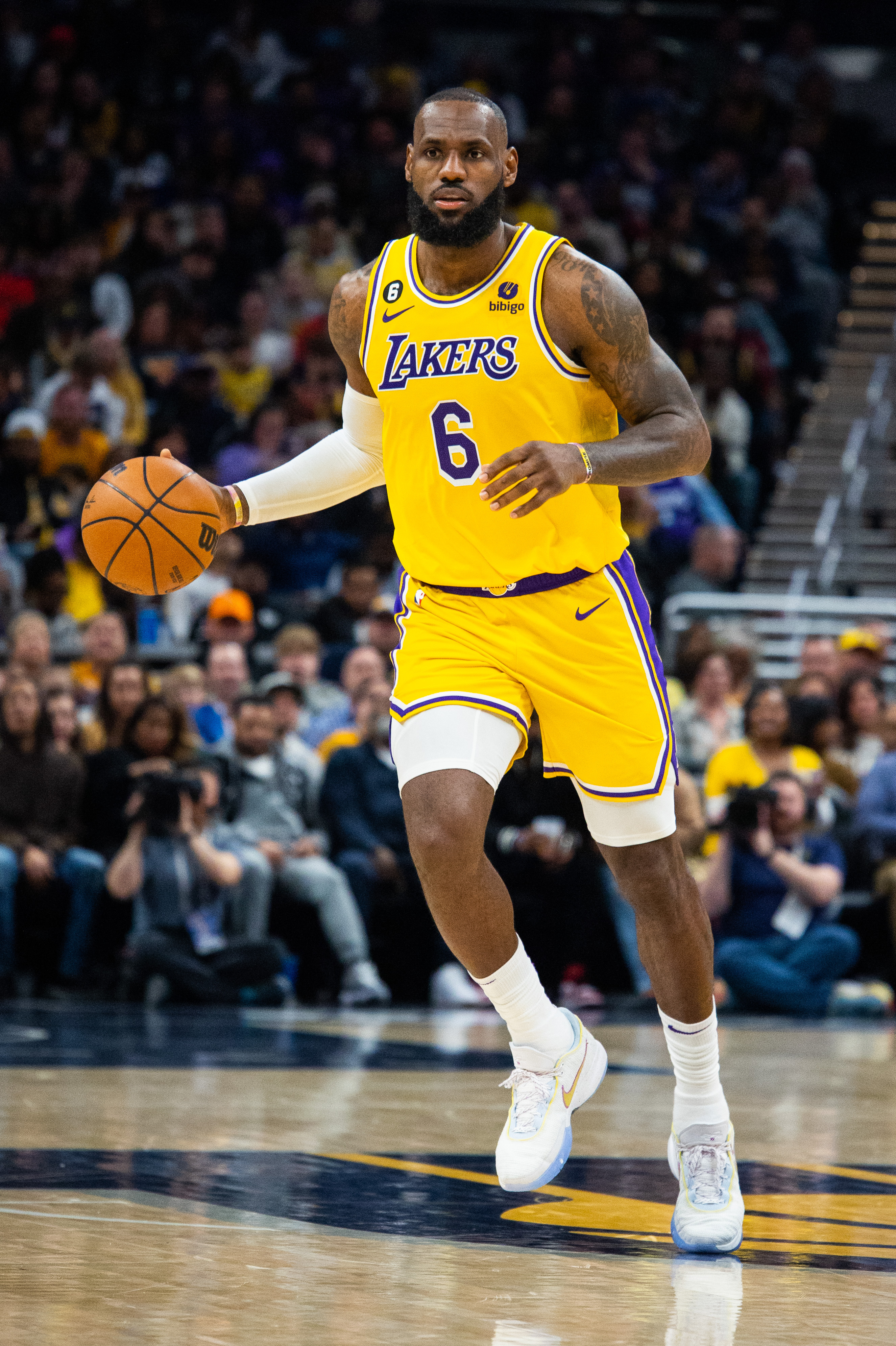
Stats: 25.3 PPG, 7.8 RPG, 10.2 APG, 1.2 SPG, 0.5 BPG
Achievements And Awards: NBA Champion, NBA Finals MVP, All-NBA First Team, All-Star
The 2019-20 season was a redemption year for LeBron James and the Lakers. LeBron led the league in assists with 10.2 per game, while also scoring 25.3 points and grabbing 7.8 rebounds. His partnership with Anthony Davis proved to be one of the best duos in the league, leading the Lakers to a 52-19 record, finishing first in the Western Conference. LeBron was selected for the All-Star Game and named to the All-NBA First Team for the 16th time.
In the playoffs, LeBron stepped up his game, guiding the Lakers to their 17th NBA Championship. He was dominant in the Finals, averaging nearly a triple-double and earning his fourth Finals MVP award. His leadership and consistent excellence were critical in securing the Lakers’ first title in a decade.
2020-21 Season – LeBron James
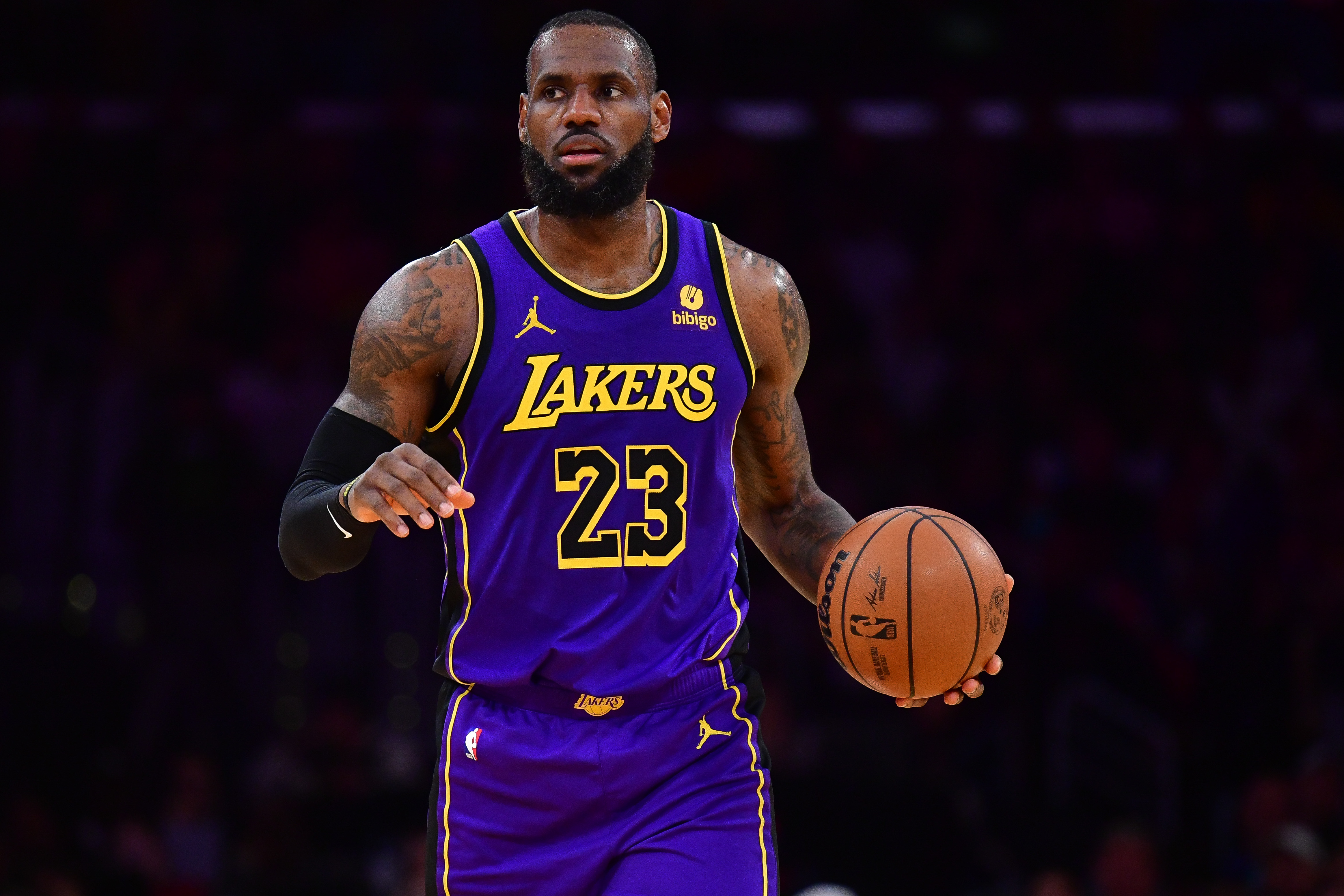
Stats: 25.0 PPG, 7.7 RPG, 7.8 APG, 1.1 SPG, 0.6 BPG
Achievements And Awards: All-Star, All-NBA Second Team
In the 2020-21 season, LeBron James started strong but faced a serious ankle injury that sidelined him for a significant chunk of the year. Before the injury, he averaged 25.0 points, 7.7 rebounds, and 7.8 assists per game, showing his usual all-around dominance. Despite missing 27 games, LeBron was still named to his 17th All-Star Game and selected to the All-NBA Second Team. His leadership helped the Lakers secure the 7th seed after a play-in victory.
The playoffs, however, were a different story. LeBron returned from injury, but it was clear he wasn’t at full strength. The Lakers struggled in the first round against the Phoenix Suns and were eliminated in six games. This marked LeBron’s first-ever exit in the first round of the playoffs, ending a season that had started with championship hopes but finished with disappointment.
2021-22 Season – LeBron James
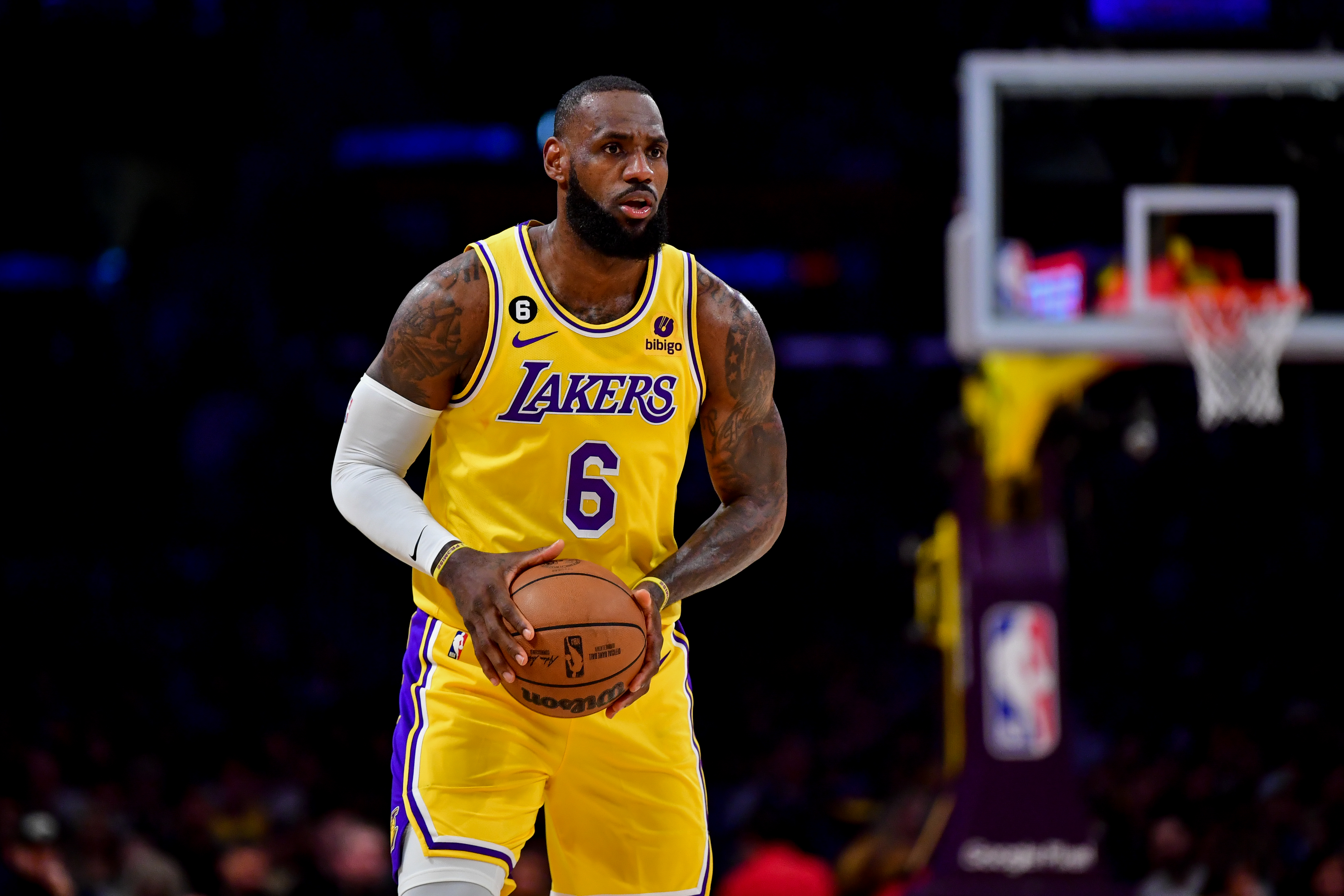
Stats: 30.3 PPG, 8.2 RPG, 6.2 APG, 1.3 SPG, 1.1 BPG
Achievements And Awards: All-Star, All-NBA Third Team
LeBron James put up one of the best scoring seasons of his career in 2021-22, averaging 30.3 points per game, the most since his younger days in 2005-06. He also averaged 8.2 rebounds and 6.2 assists, remaining a key playmaker and rebounder for the Lakers. At age 37, his ability to score and impact games was nothing short of remarkable, earning him another All-Star selection and a spot on the All-NBA Third Team.
Despite LeBron’s brilliance, the Lakers struggled to stay healthy and maintain consistent play. Key injuries to Anthony Davis and other players derailed their season, and the team finished with a disappointing 33-49 record, missing the playoffs entirely. LeBron’s individual performances were one of the few bright spots, but it was a tough year for the franchise as they missed out on championship contention.
2022-23 Season – LeBron James
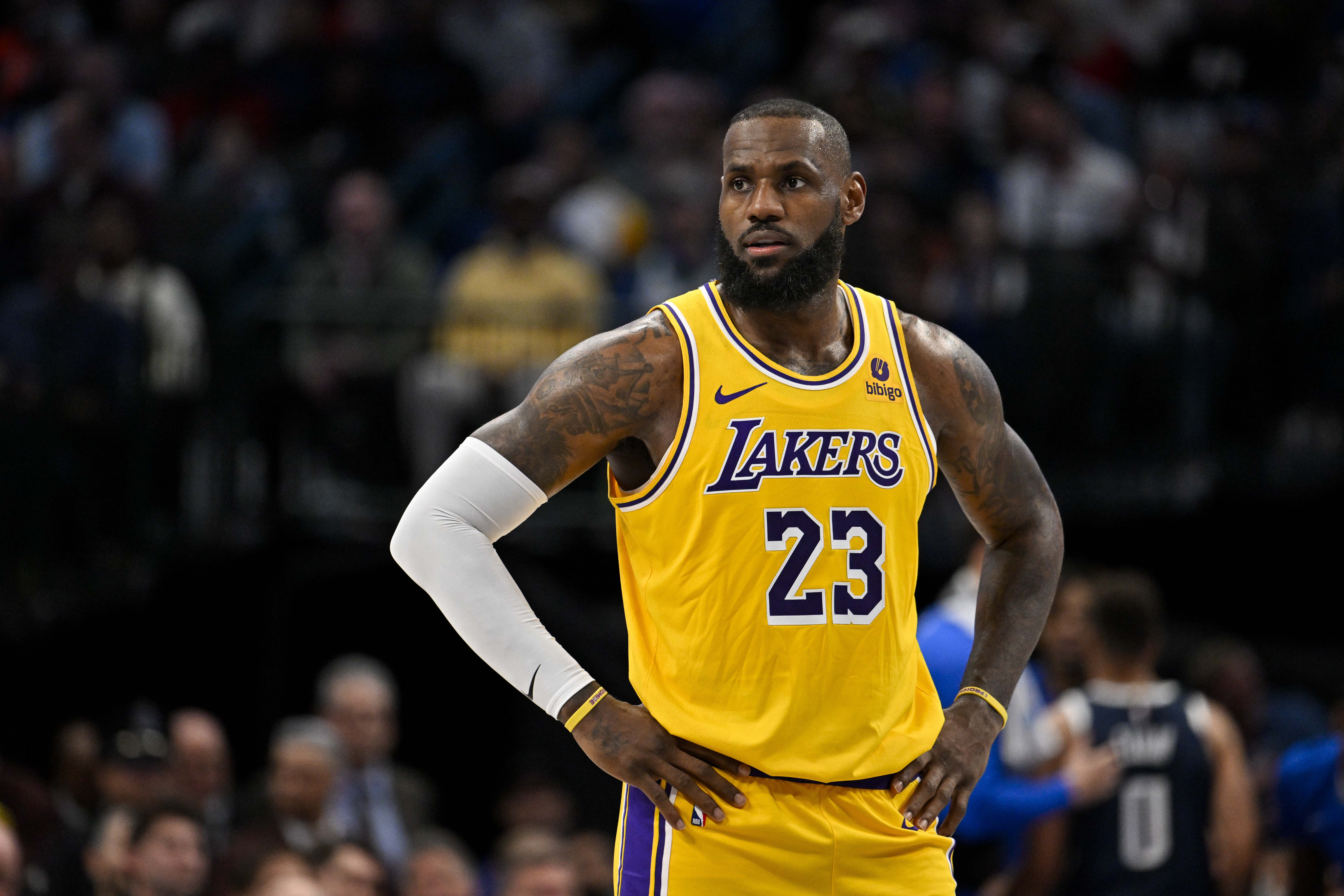
Stats: 28.9 PPG, 8.3 RPG, 6.8 APG, 0.9 SPG, 0.6 BPG
Achievements And Awards: All-Star, All-NBA Third Team
The 2022-23 season saw LeBron James continuing to defy age, averaging an impressive 28.9 points per game along with 8.3 rebounds and 6.8 assists. Even in his 20th season, LeBron was still the focal point for the Lakers’ offense and a dominant force on the court. His consistency earned him another All-Star selection and a spot on the All-NBA Third Team, proving once again that he remains one of the league’s best players.
The Lakers finished with a 43-39 record, making it to the playoffs after a solid push late in the season. LeBron’s leadership and high-level play were critical in getting the Lakers back into contention. However, the team ultimately fell to the Denver Nuggets, showing they still needed more pieces around their aging superstar to compete at the highest level.
2023-24 Season – LeBron James
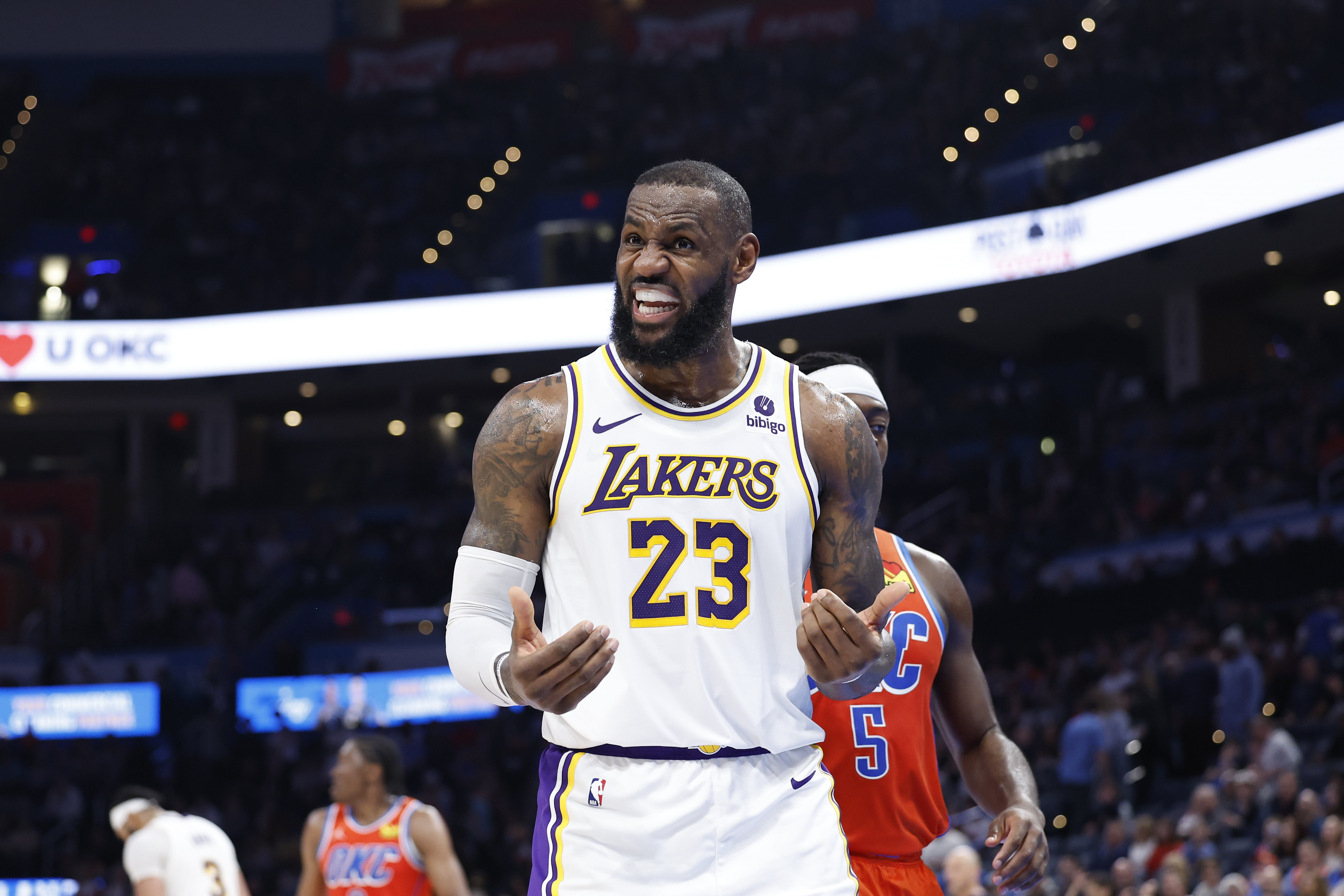
Stats: 25.7 PPG, 7.3 RPG, 8.3 APG, 1.3 SPG, 0.5 BPG
Achievements And Awards: All-Star, All-NBA Third Team
In the 2023-24 season, LeBron James continued his impressive play, averaging 25.7 points, 7.3 rebounds, and 8.3 assists per game over 71 games. Even in his 21st season, LeBron remained a key figure for the Lakers, being selected to his 20th All-Star Game and earning another All-NBA Third Team nod. His ability to maintain high-level production was critical to the Lakers’ success as they aimed for another deep playoff run.
While LeBron’s numbers were stellar, the Lakers faced their own challenges with injuries and inconsistency throughout the season. Nevertheless, LeBron’s leadership helped the team stay competitive, and he continued to play a pivotal role, especially in crunch time.

